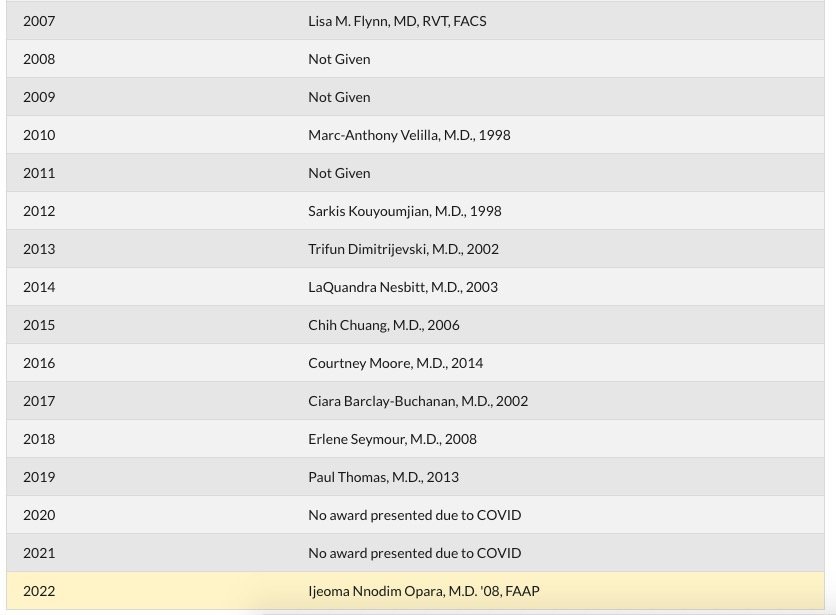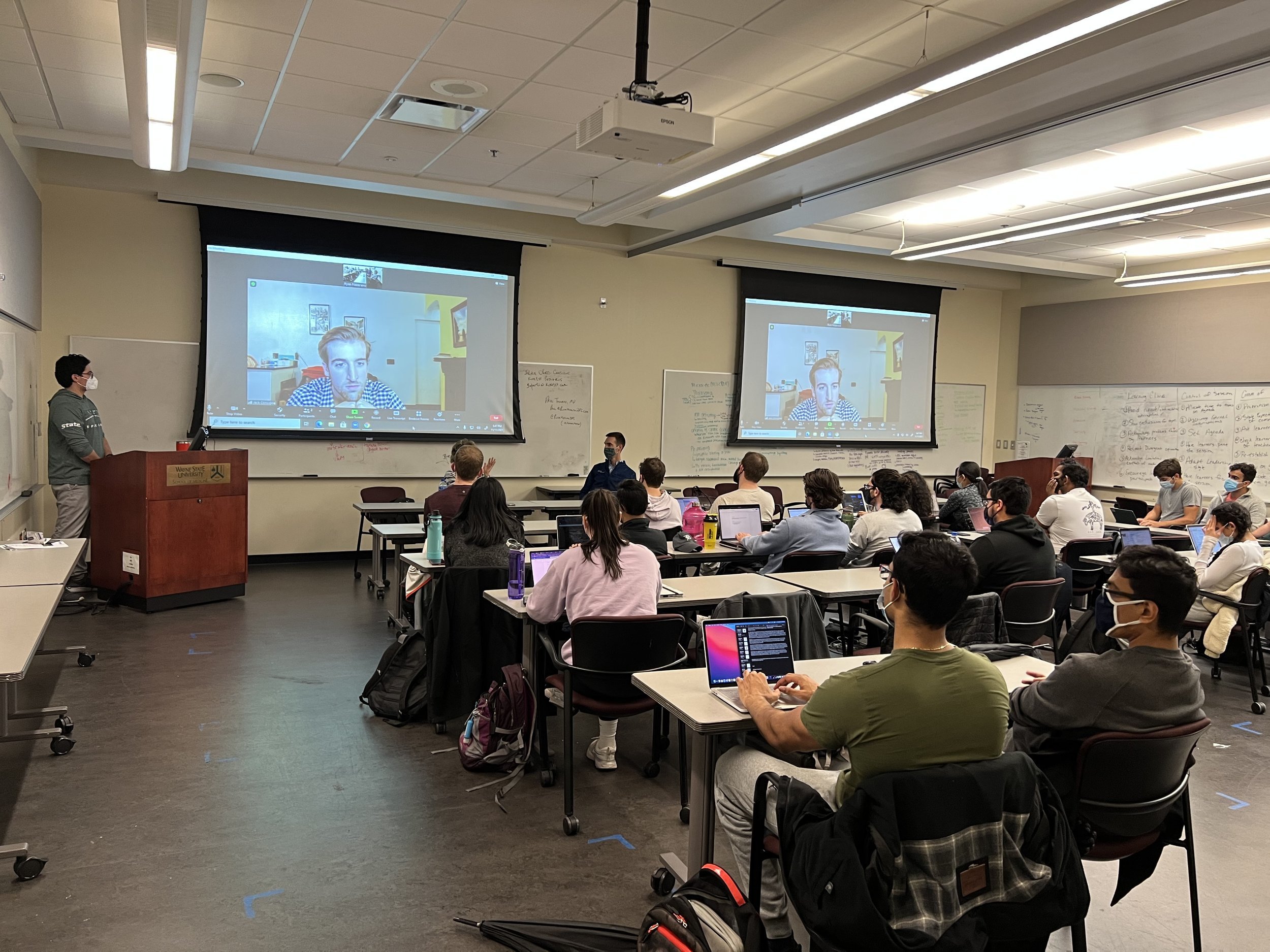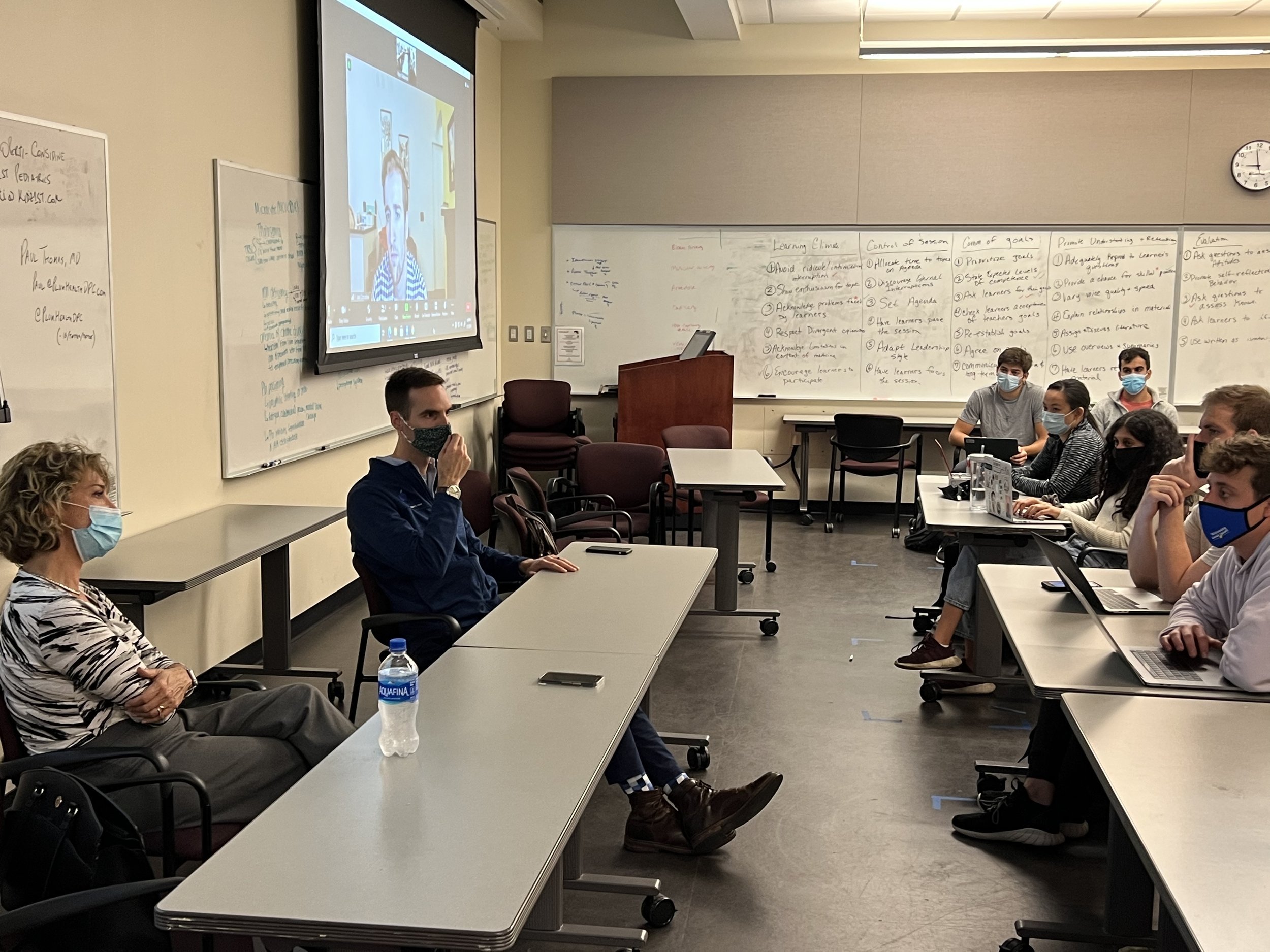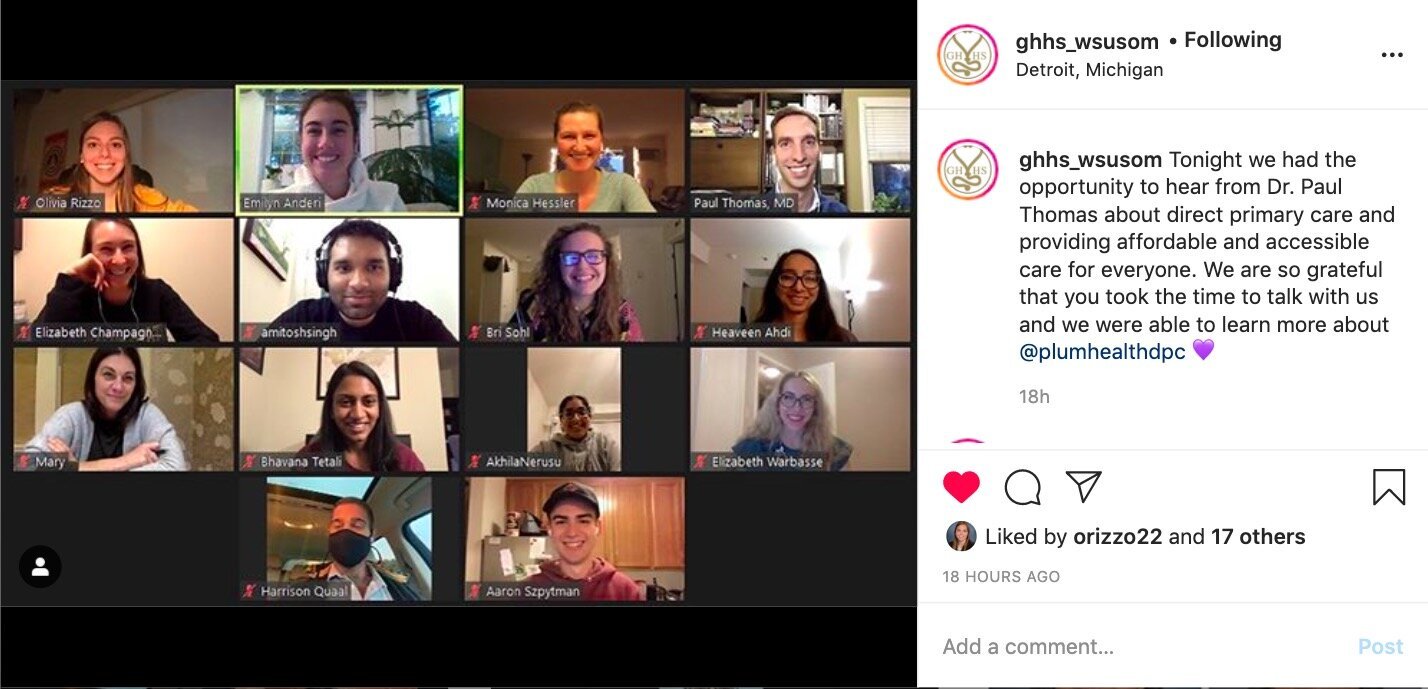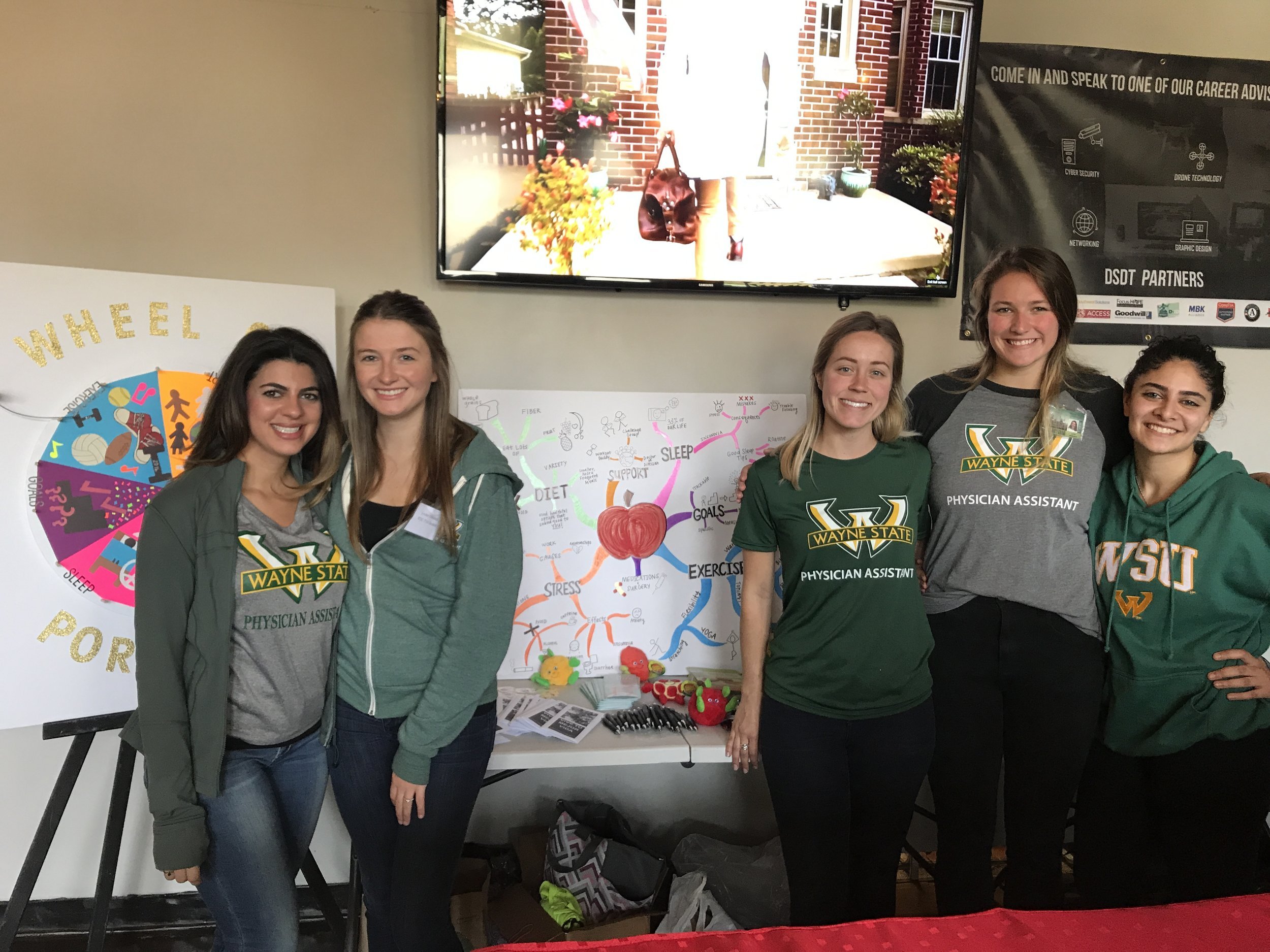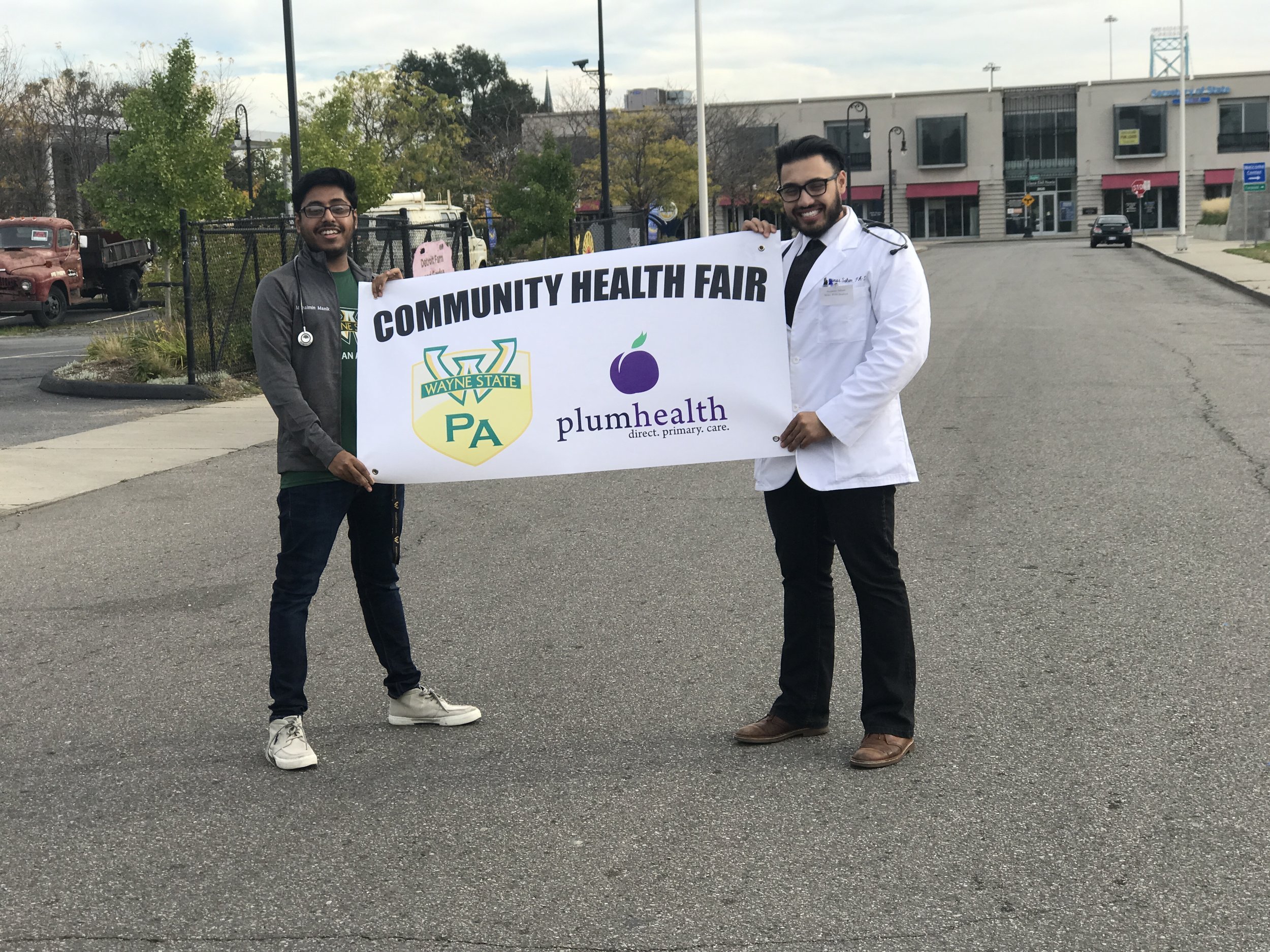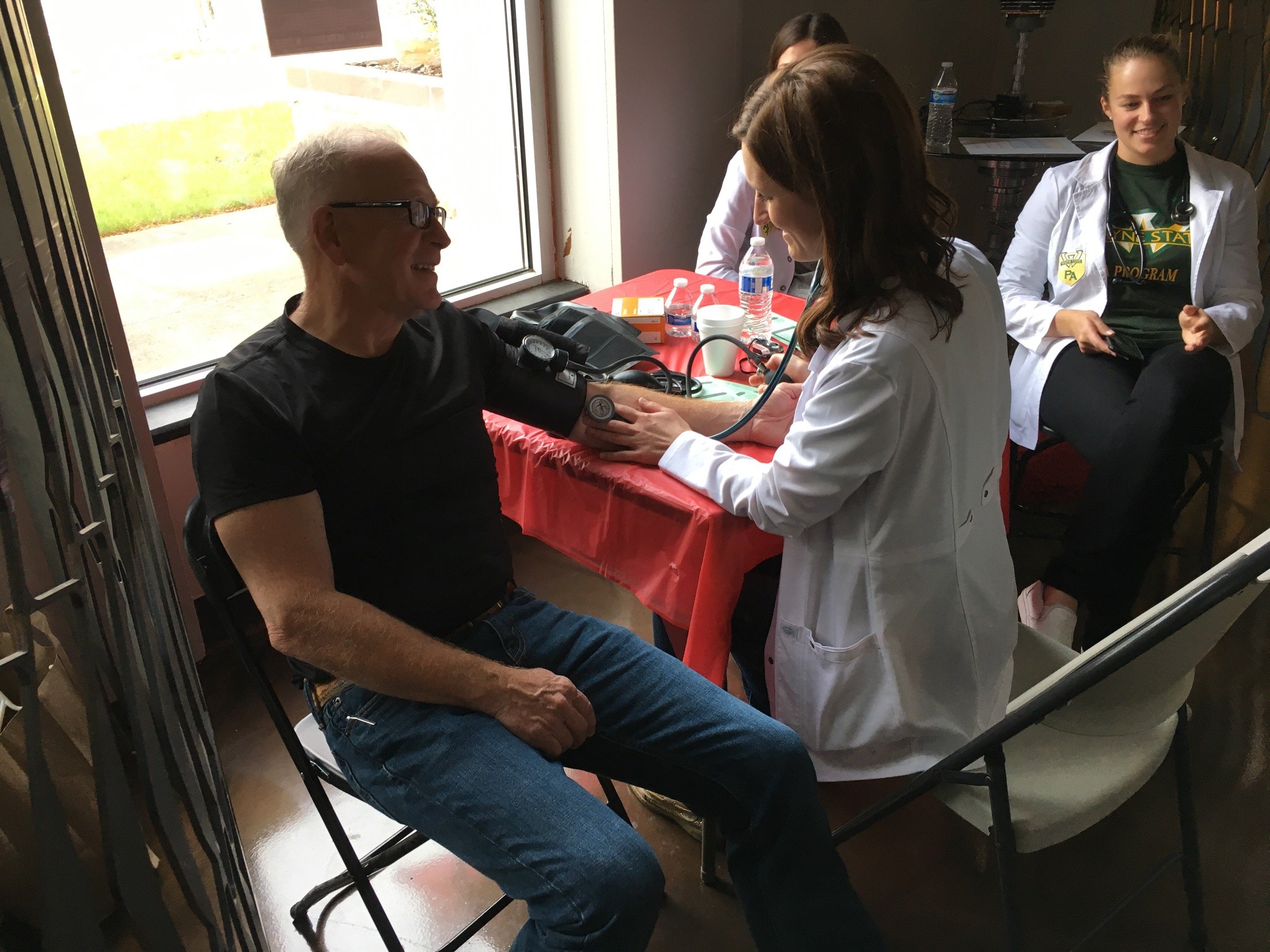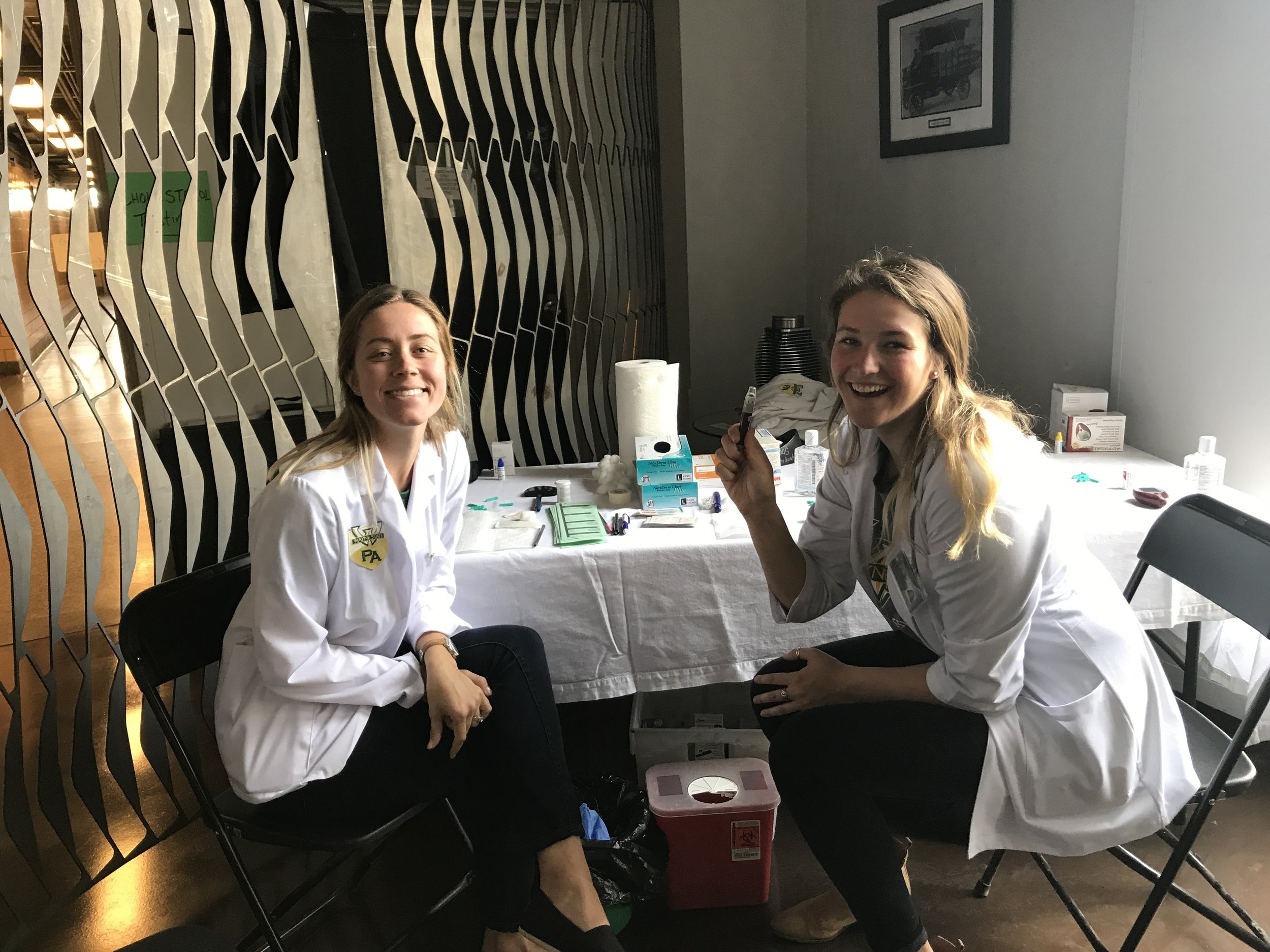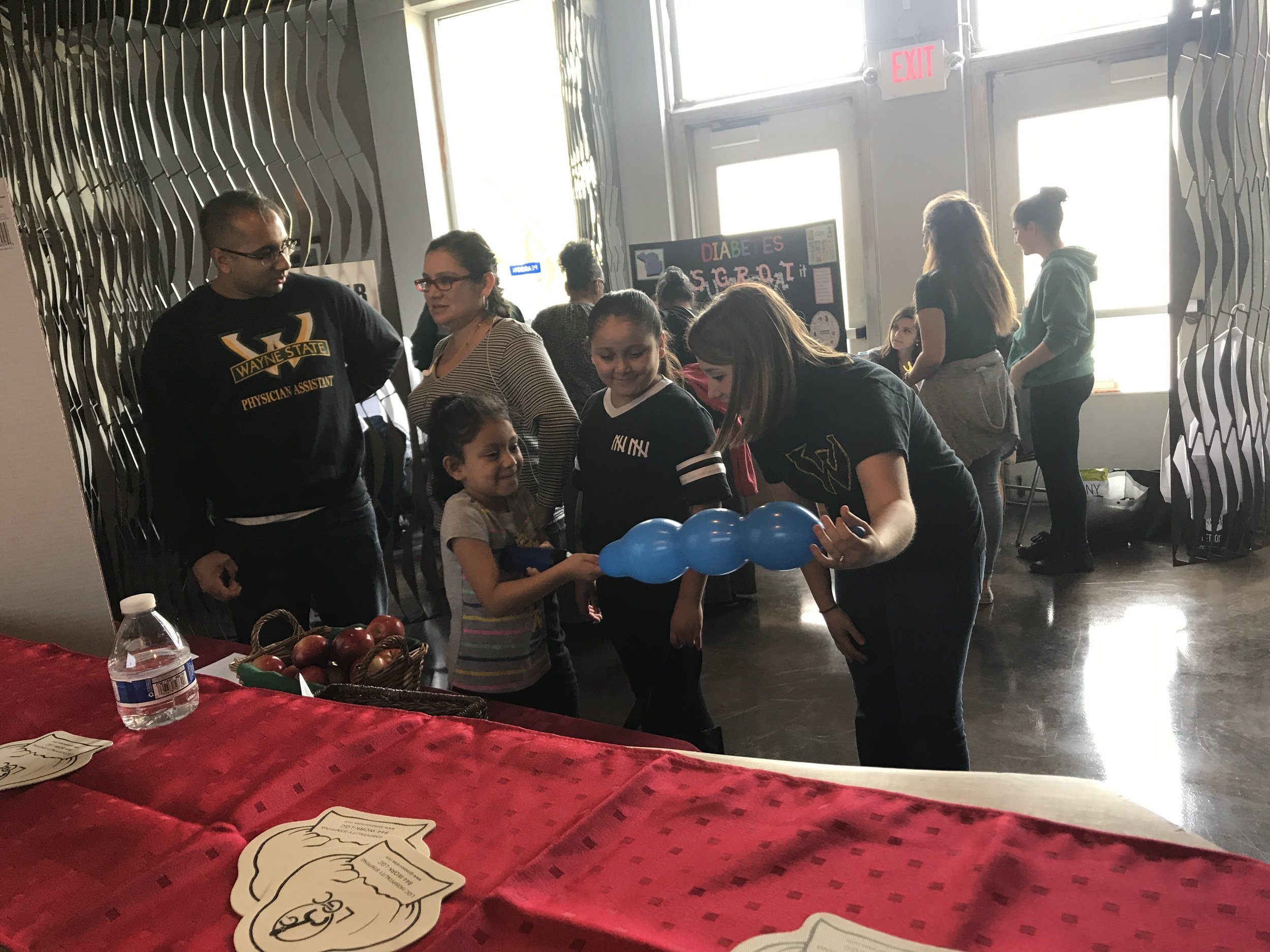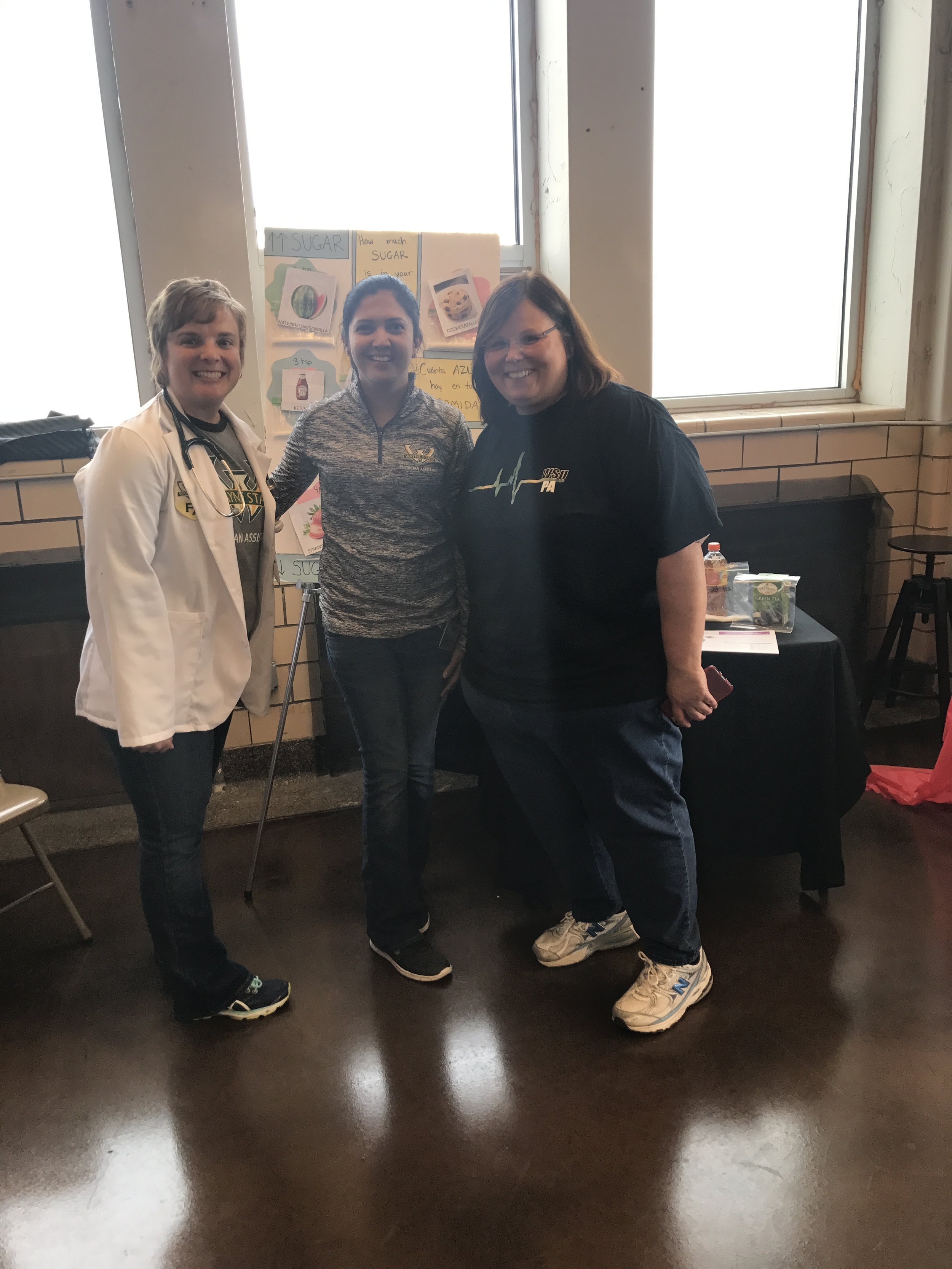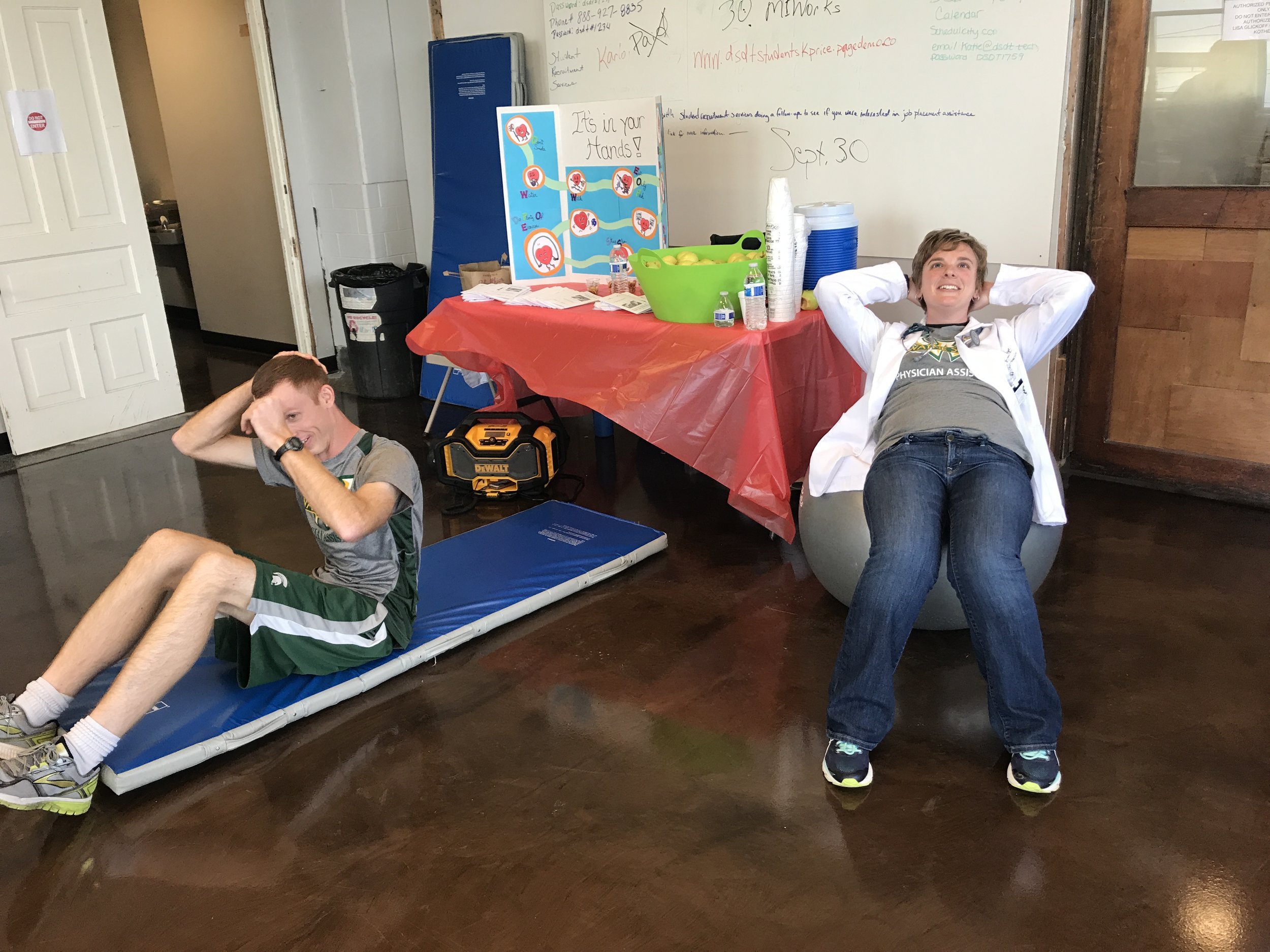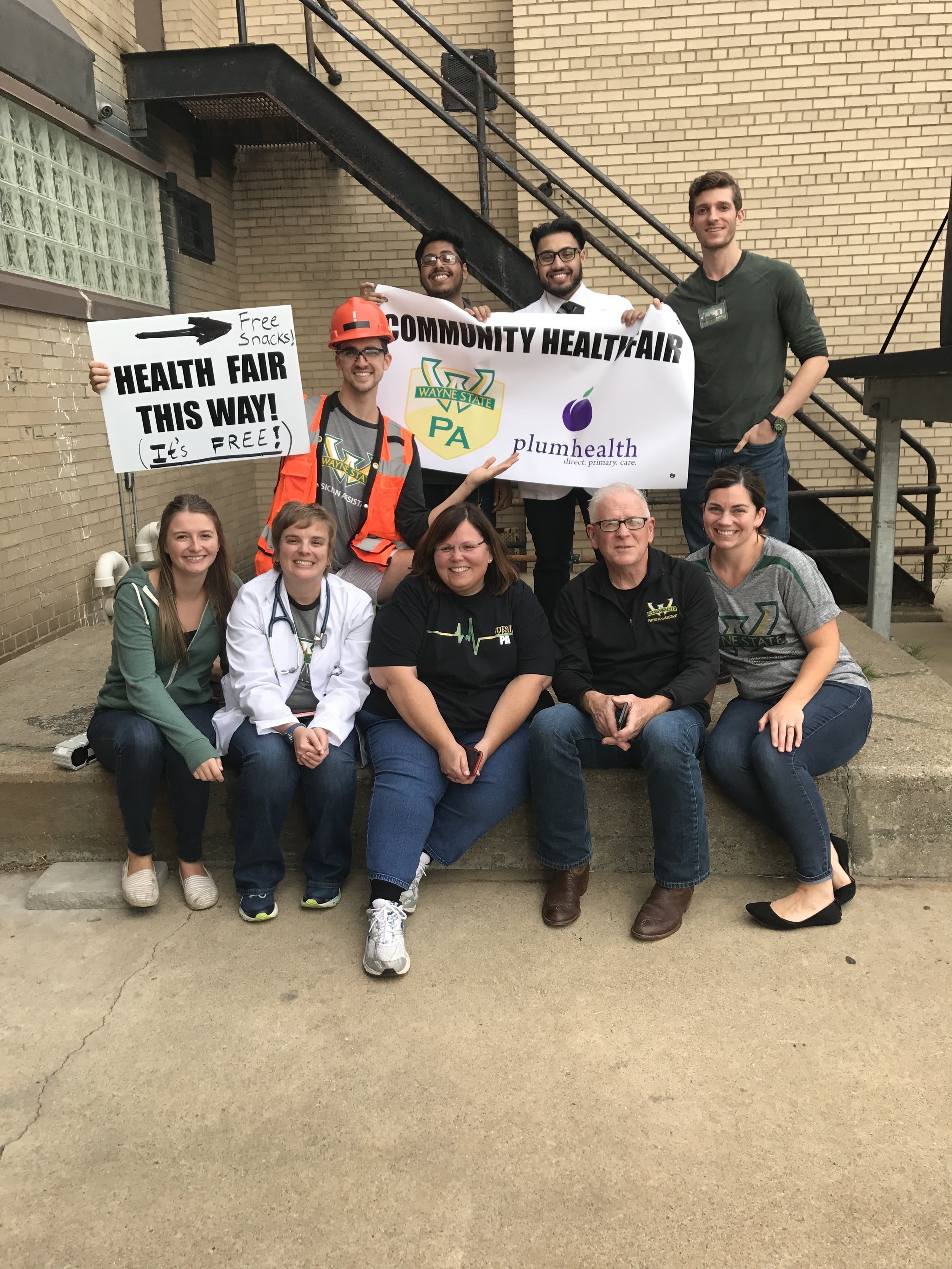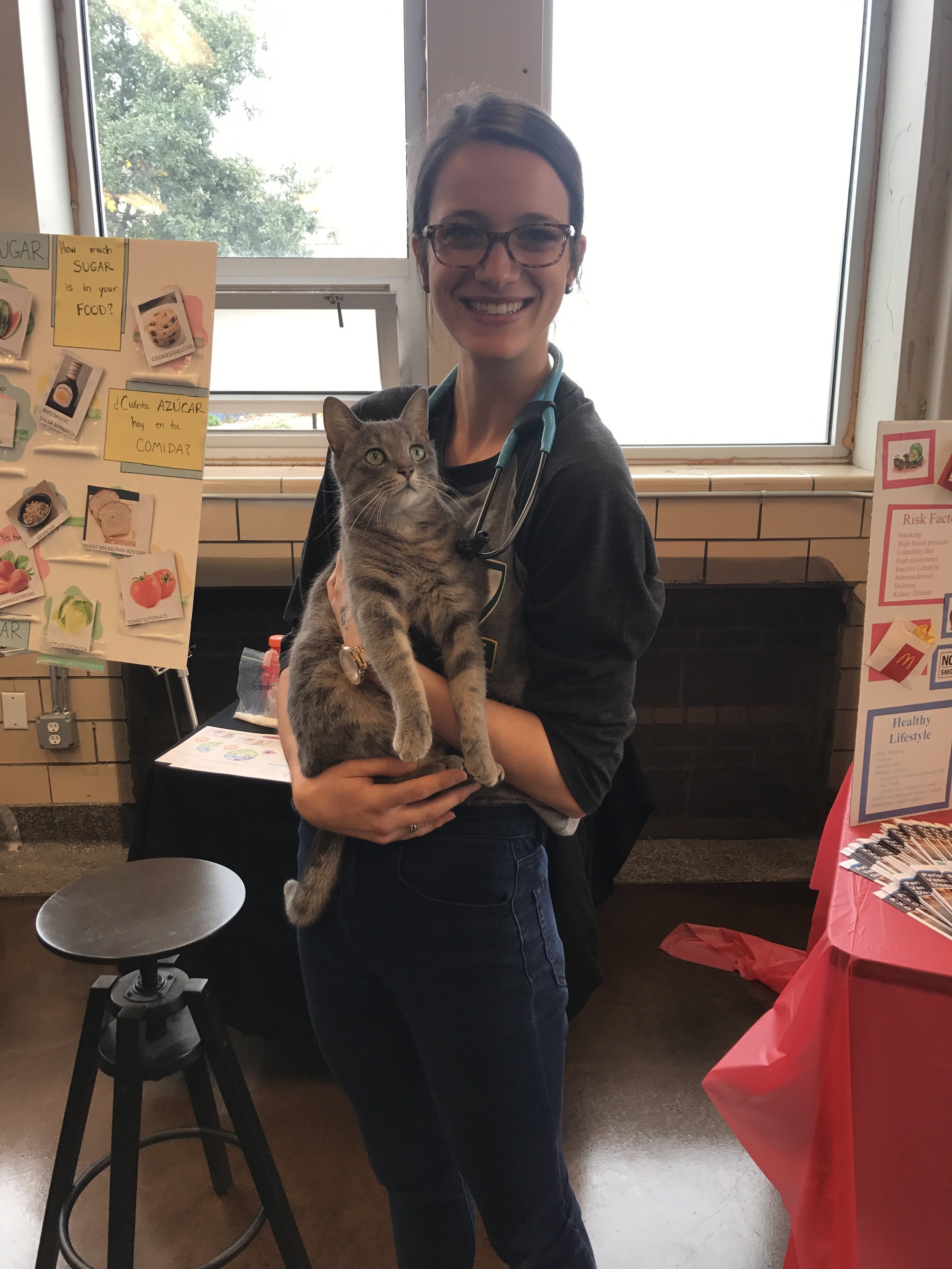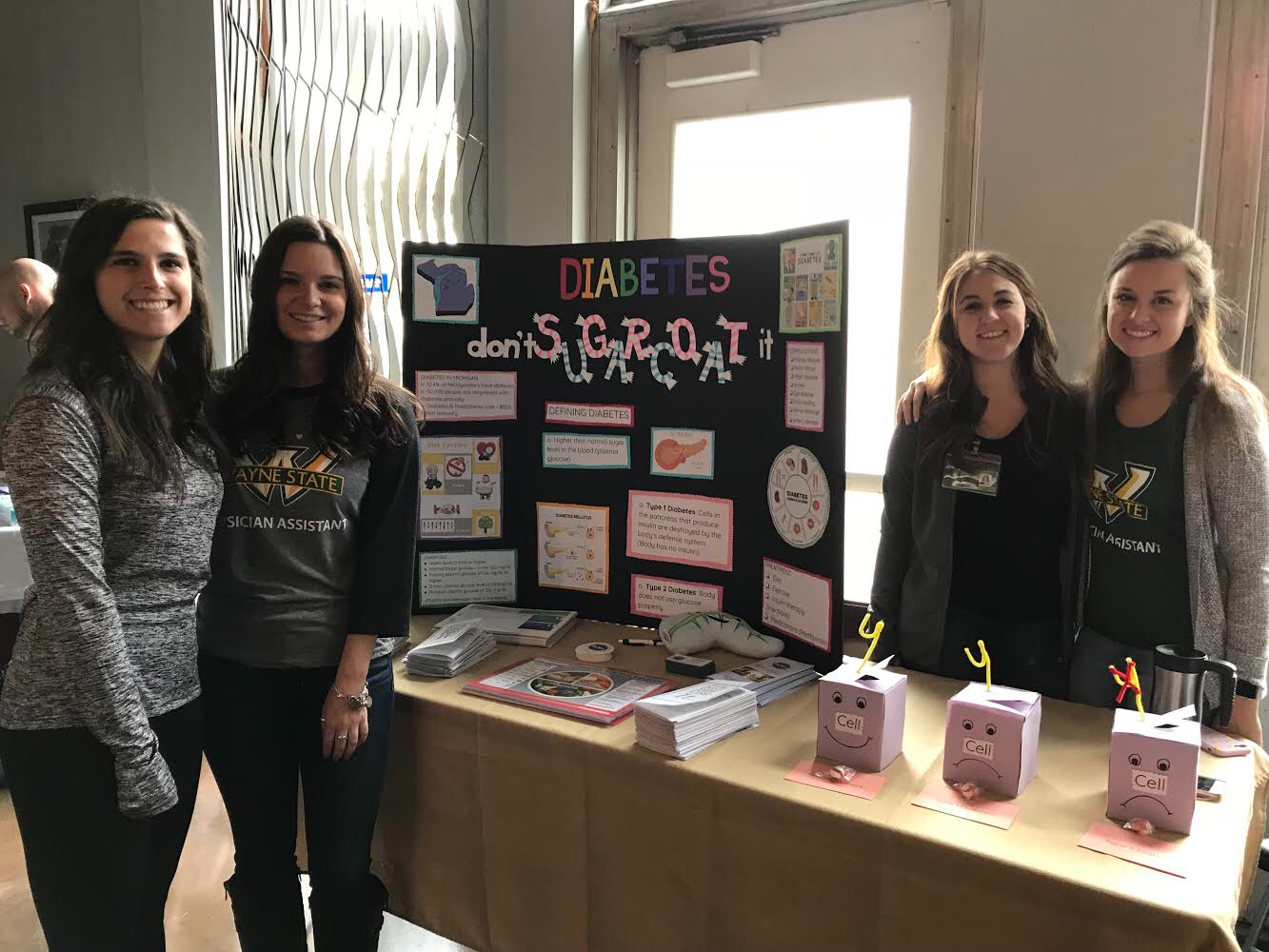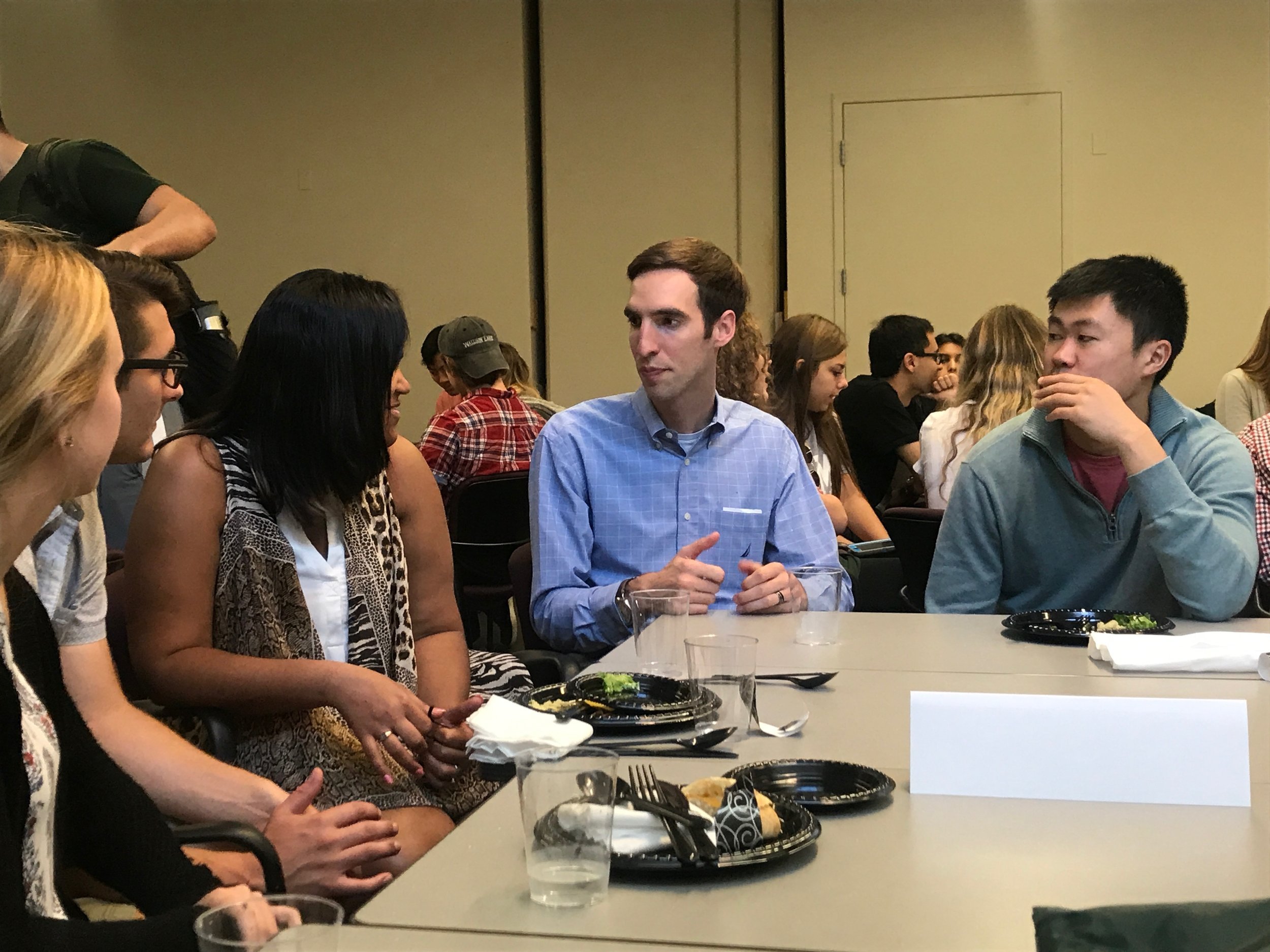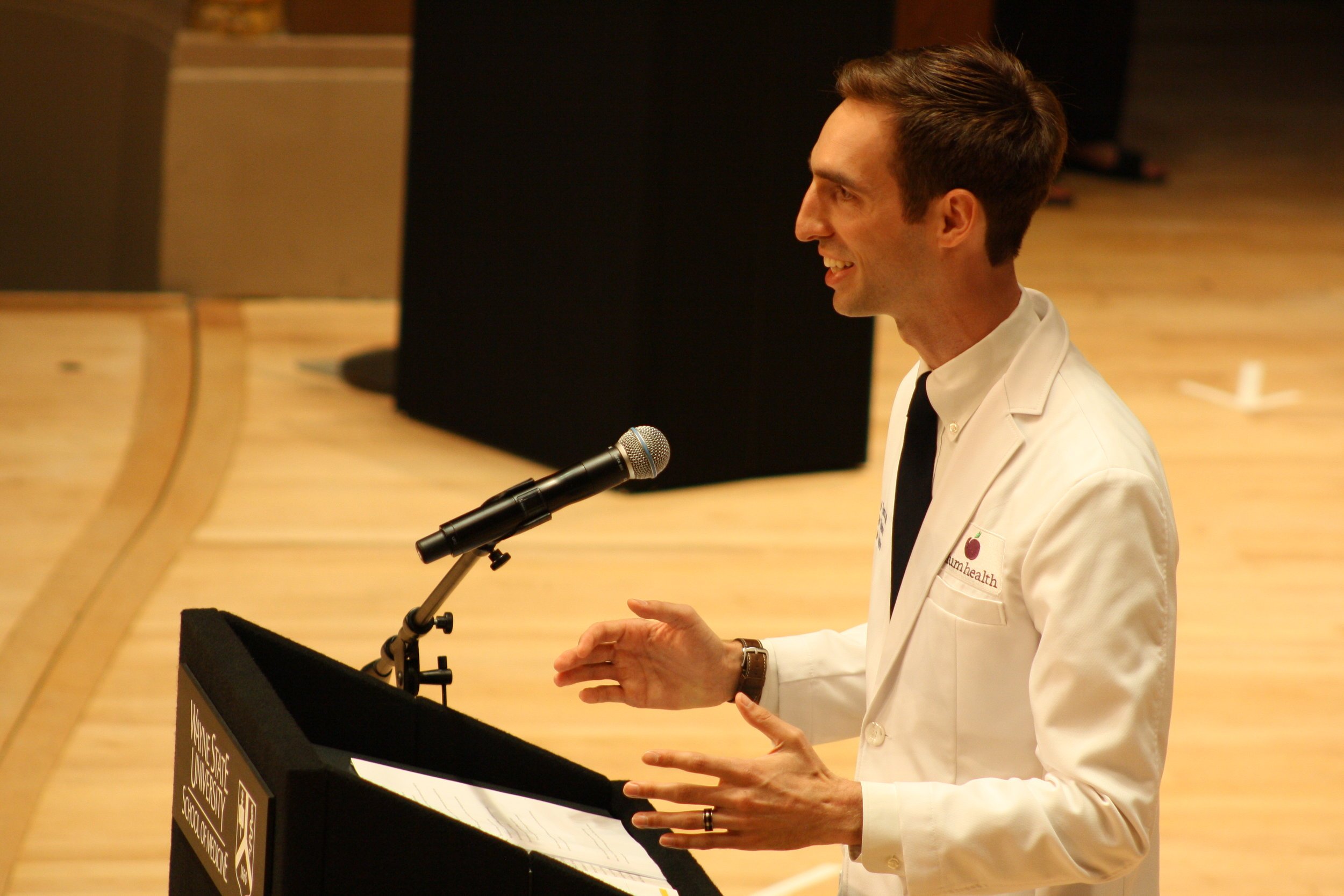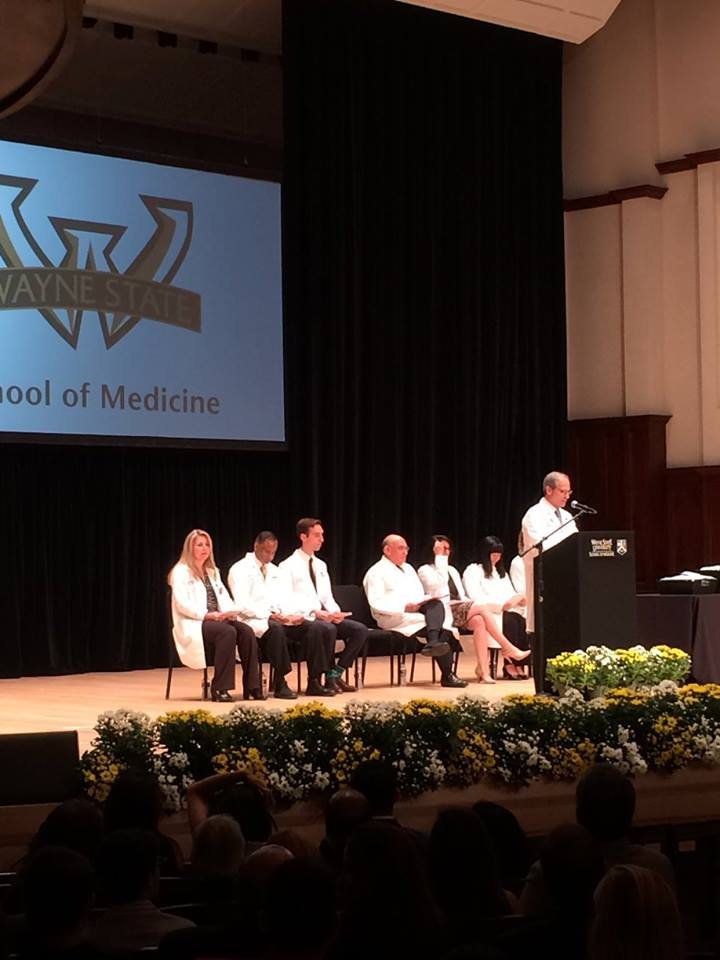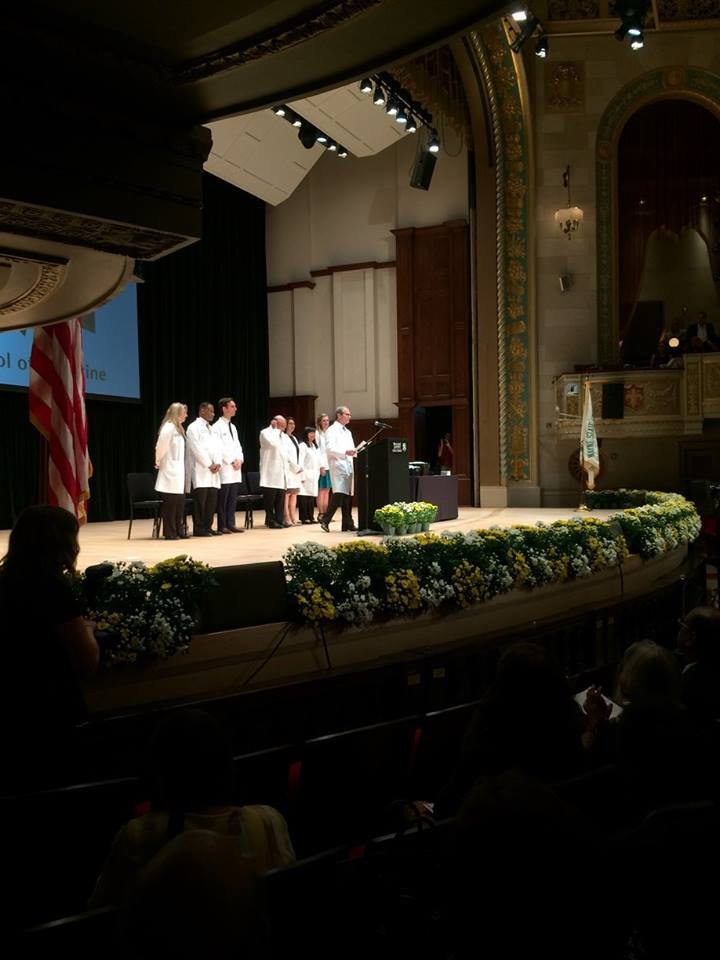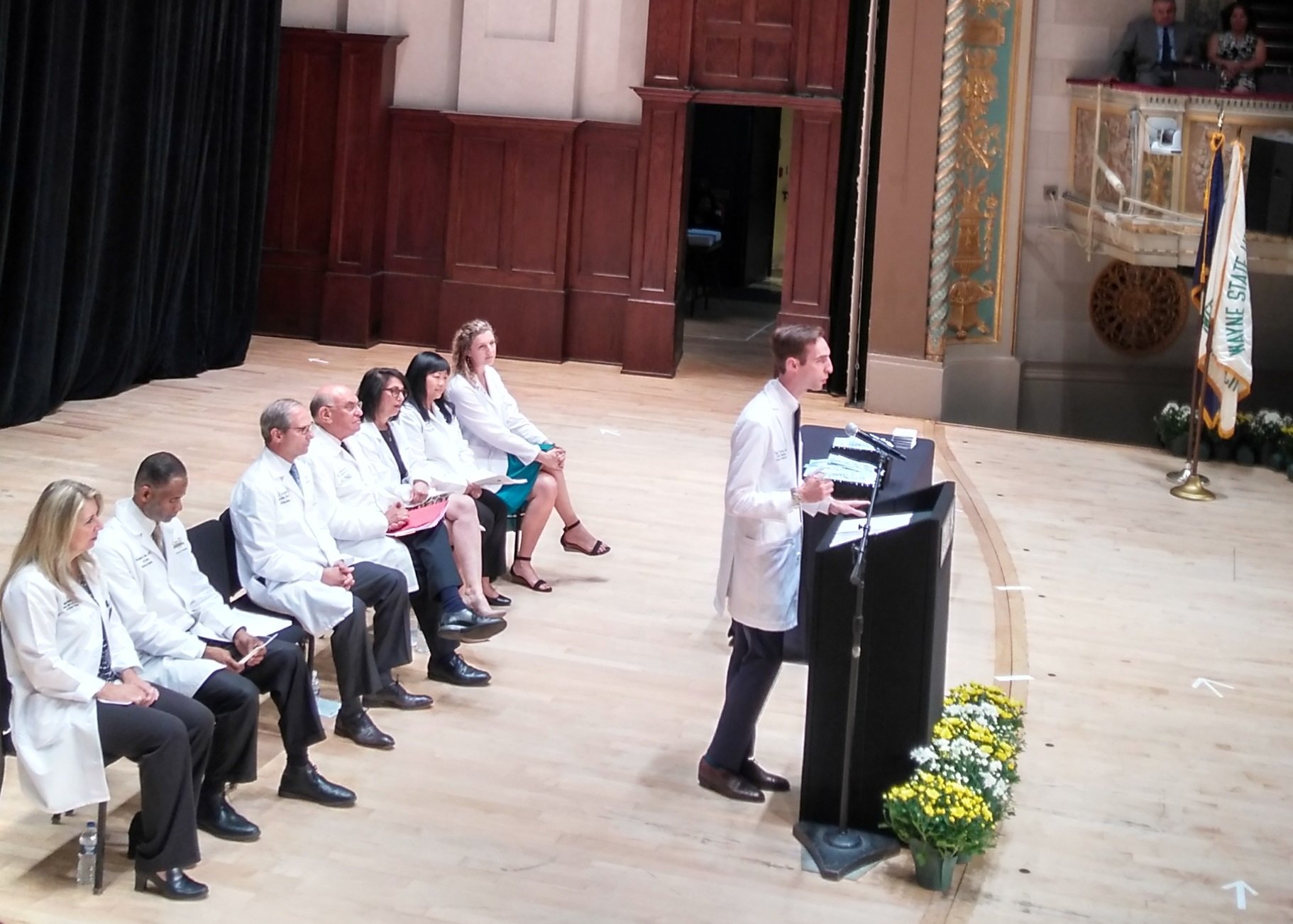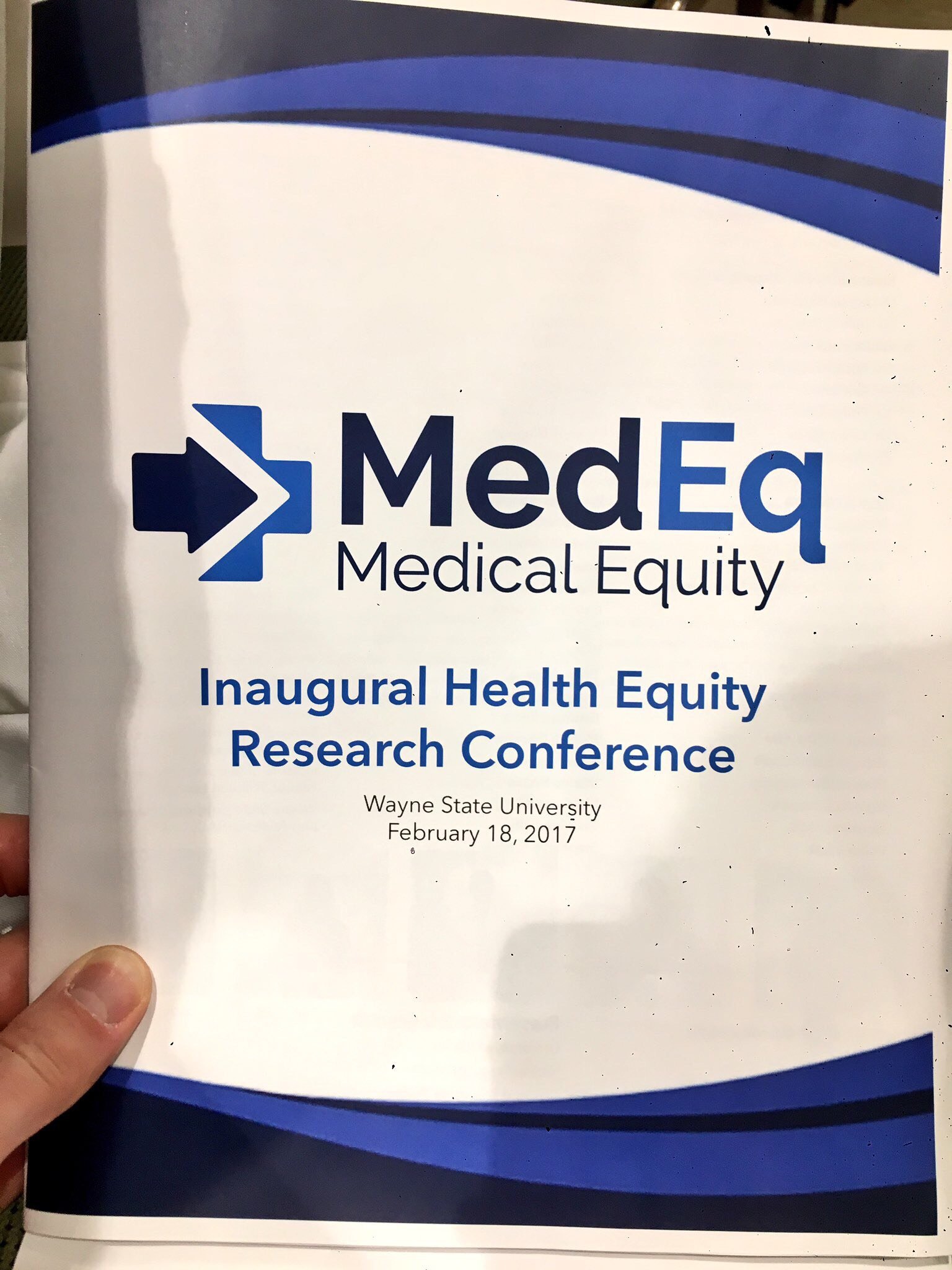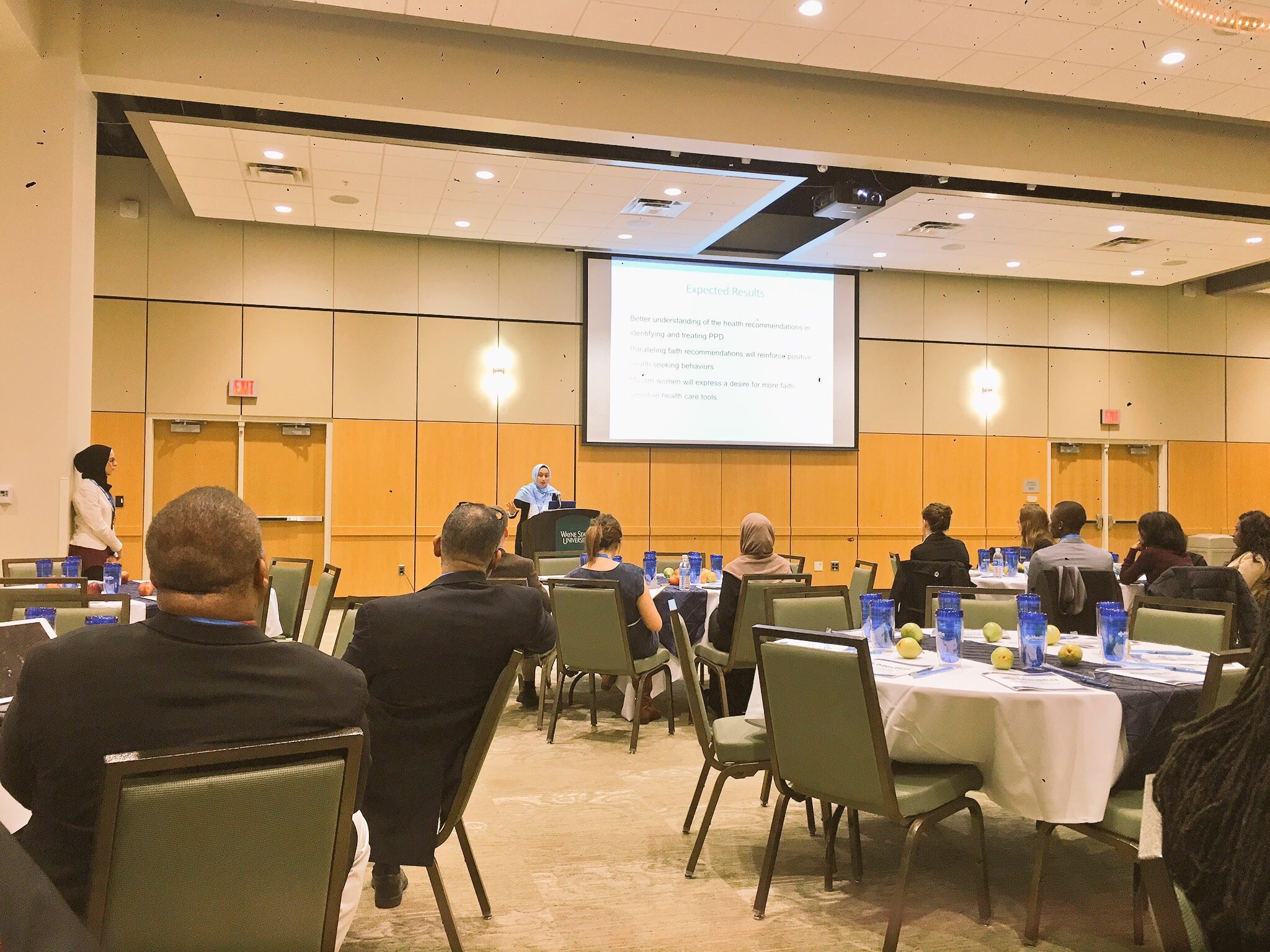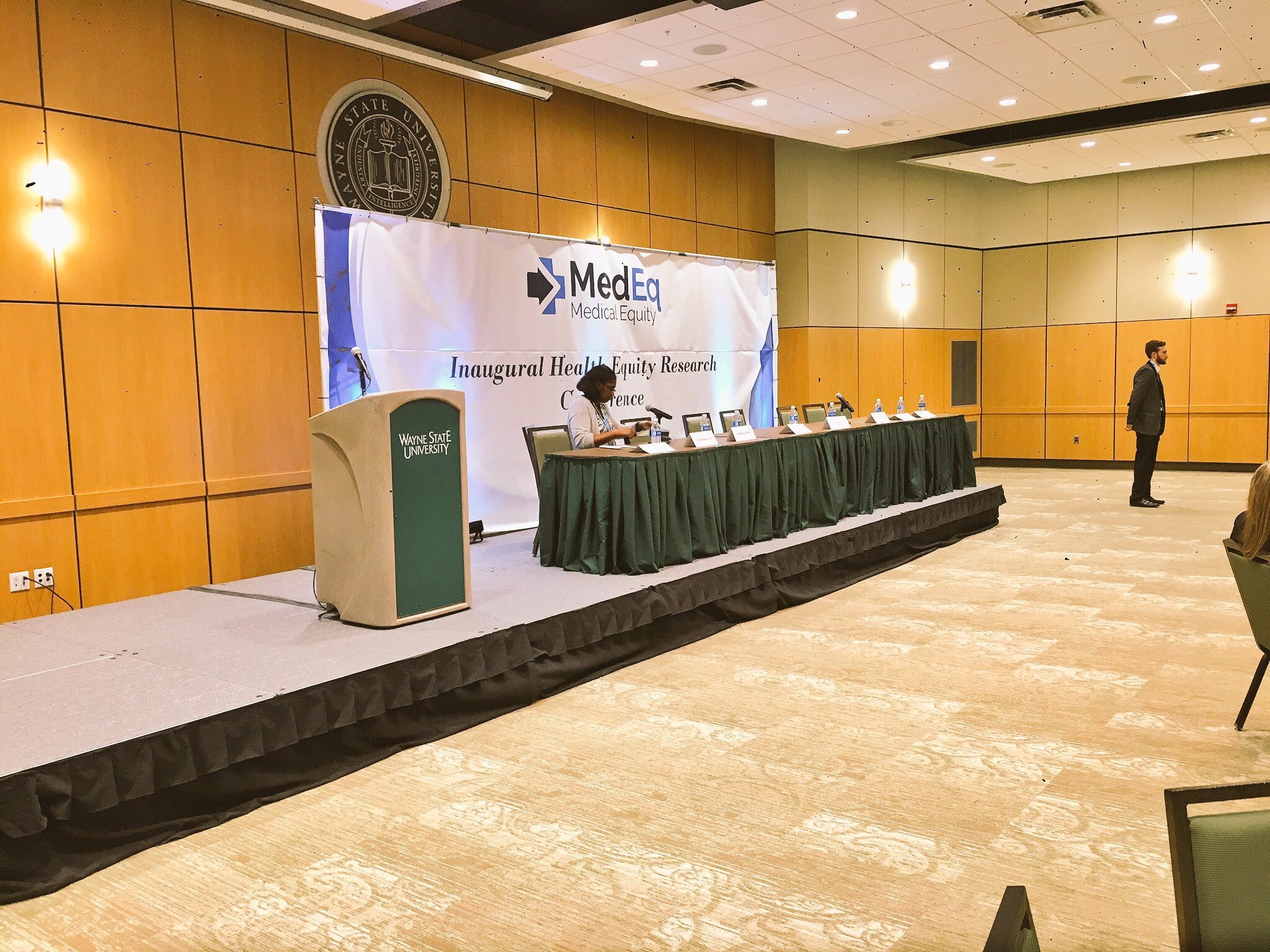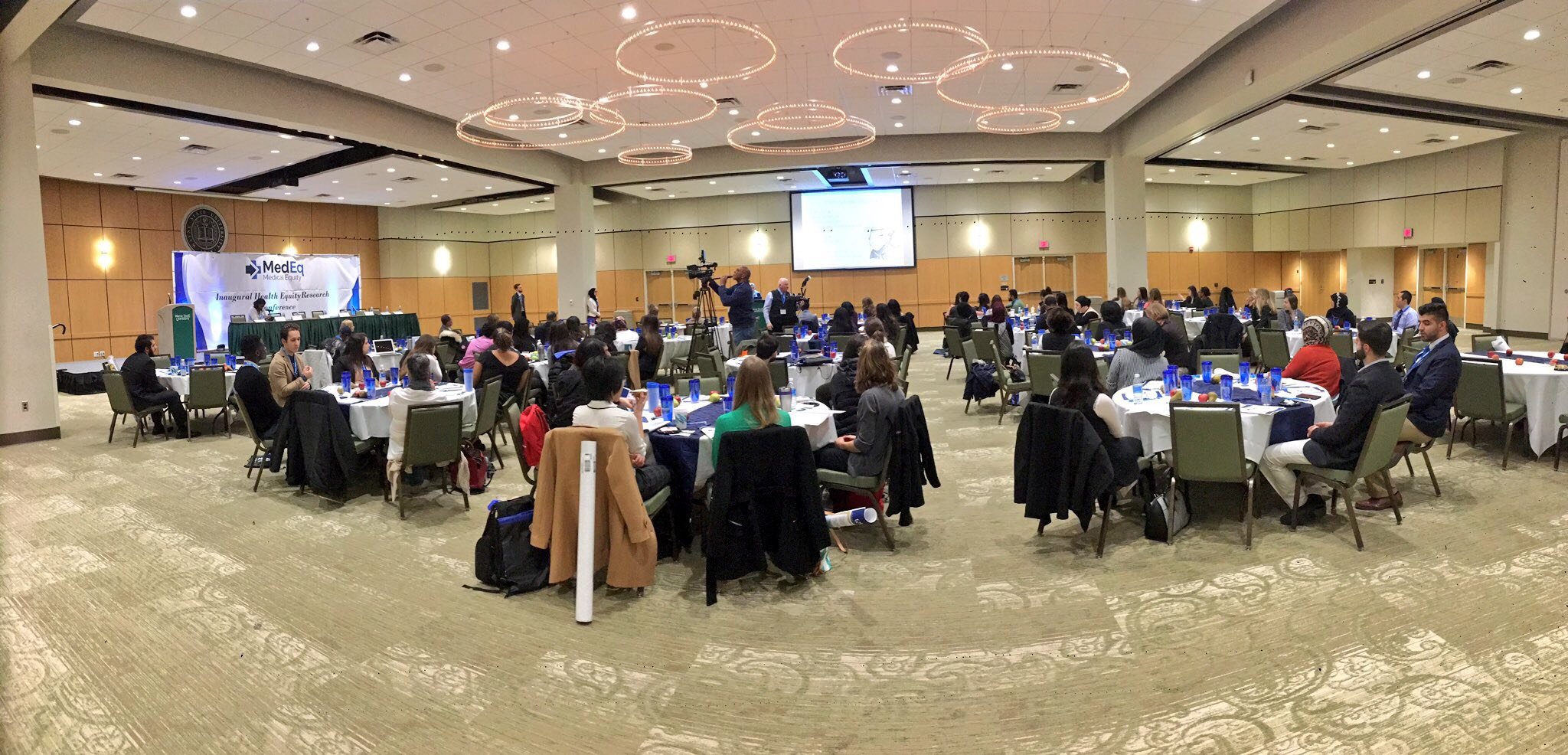Plum Health Blog
Dr. Paul Thomas is a Proud Graduate of Wayne State University School of Medicine Class of 2013
This month, Dr. Paul Thomas attended the Class of 2013 Alumni Reunion Weekend. Dr. Thomas graduated from Wayne State University School of Medicine in 2013 - thereafter, he completed his residence at Oakwood/Beaumont Family Medicine Residency Program, and then started Plum Health DPC in November 2016.
Time flies when you’re practicing medicine - the days are long but the years are short. As physicians, we put our all into taking care of other people and making sure people in our community stay healthy. The School of Medicine’s Mission is as follows:
We will educate a diverse student body in an urban setting and within a culture of inclusion, through high-quality education, clinical excellence, pioneering research, local investment in our community and innovative technology, to prepare physician and biomedical scientific leaders to achieve health and wellness for our society.
It’s refreshing to connect with a group of doctors who share these values - all striving to improve the health and wellness of our community. I’m forever grateful to have been immersed in the culture of WSU SOM and my experiences there informed how I practice today and in the future at my practice, Plum Health DPC.
Paul Thomas, MD - Recent Alumni Award Recipient from Wayne State University School of Medicine
Paul Thomas, MD - Recent Alumni Award Recipient from Wayne State University School of Medicine
In 2019, Dr. Paul Thomas received the Recent Alumni Award from Wayne State University School of Medicine. This is a prestigious award that is not given out every year. Here’s how it’s described by WSU SOM:
The Recent Alumni Award, established in 2003, is presented to an individual who received an M.D. degree from the WSU School of Medicine within the last 15 years and has demonstrated outstanding professional achievement, community contributions or service to Wayne State University School of Medicine.
Here’s a list of the previous Recent Alumni Award Winners at Wayne State University School of Medicine:
Paul Thomas MD at Wayne State University School of Medicine for a Business of Medicine Elective Course Panel
Wayne State University School of Medicine Business of Medicine Elective Course Invites Dr. Paul Thomas to a Panel
Dr. Paul Thomas, a Wayne State University School of Medicine graduate from 2013, was invited to be a part of a panel discussing Business of Medicine. This was a group of medical students interested in the business side of medicine.
I was really happy to receive this invitation as it is my opinion that medical schools should focus more time in their curriculum to the business of medicine. Topics that ought to be discussed included how to attract patients, how to generate revenue, how to pick and use an electronic medical record, how to manage practice finances, how to start a PLLC or an LLC to operate your business or purchase real estate for your business, how to invest, etc… These skills would be transformational if all physicians were equipped with these business fundamentals.
Paul Thomas, MD of Plum Health DPC speaks to a group of medical students at Wayne State University School of Medicine During their Business of Medicine elective course.
During the course of the evening, we talked about all of the above topics and more, including the following:
How do you build and maintain a patient population in a private practice?
How do referrals work, and what do you focus on when building relationships with specialists when it comes to referrals?
How to decide on employee personnel (PA vs NP vs another MD/DO, MA's vs CNA's etc)
As a growing practice, how do you gain buying power against large healthcare establishments?
Other than telemedicine, what changes from COVID do you foresee staying/playing a role long term?
It was an excellent conversation and I was happy to share my knowledge and insights in these areas. After the event, I received the following thank you.
On behalf of the students and myself, a sincere and grateful 'thank you' for the gift of your time and your insights last evening.
During this very informative and engaging discussion you helped these first-year medical students gain a better understanding of many of the business issues involved in establishing a direct primary care practice. Your entrepreneurial skills were very evident, and we are thrilled they had a chance to get to know this other side of your story.
It was great to observe the ease with which you engaged with the students, and we all benefited from the breadth and particulars of the discussion. The discussion continued after you left, and I am certain the students will continue to benefit from the opportunity to hear about your fascinating journey and will take to heart the advice you gave.
In closing, it’s great to see medical students engaged in the Business of Medicine, as if we want to create a more compassionate health care system, we need to fundamentally change the business models that we use to deliver health care services. Hopefully these students will be apart of that change for the better.
-Dr. Paul Thomas with Plum Health DPC
Congrats to the WSU SOM Class of 2021!
Congrats to the Wayne State University School of Medicine Class of 2021
Congrats to the Wayne State University School of Medicine Class of 2021 as they become Doctors this week! It takes 10,000 hours to become an expert in any given field of study, and these new graduates have definitely put in the time over this 4 year journey and course of study. We wish you the best as you embark on Transitional Years, Internship, Residency, Fellowship, and your practice years beyond these years of additional training.
What it takes to become a Family Physician
For those of you unfamiliar with medical education, to become a board certified family medicine physician, it takes four years of undergraduate or college study, four years of medical school training, and at least three years of residency training. That comes out to 11 years of higher education after high school to become a board certified family medicine physician.
At Plum Health, we’re incredibly lucky to work with a team of four board-certified family medicine doctors. To learn more about our team, check them out here.
Dr. Paul Thomas Speaks with Wayne State Medical Students About Lowering the Cost of Health Care
This week, I was invited to speak with Wayne State University School of Medicine students who are interested in the Direct Primary Care model and who are interested in how the model makes health care more affordable and accessible.
During this session, I talked with the students about the current problems in the United States Health Care System, the challenges that doctors face when taking care of patients, and the solutions that the Direct Primary Care model offers.
The students asked some excellent questions during the question and answer session.
Thanks for watching,
- Dr. Paul Thomas with Plum Health DPC in Detroit, Michigan
Dr. Paul Thomas Speaks with The Gold Humanism Honor Society at Wayne State
This week, I had the privilege of speaking with the medical students who make up the Gold Humanism Honor Society at Wayne State University School of Medicine. Here’s what they had to say about it:
Tonight we had the opportunity to hear from Dr. Paul Thomas about direct primary care and providing affordable and accessible care for everyone. We are so grateful that you took the time to talk with us and we were able to learn more about @plumhealthdpc 💜
When I was a medical student at WSU SOM, I was a part of the Gold Humanism Honor Society. Here’s what they’re all about:
The Gold Humanism Honor Society Chapter at Wayne State University School of Medicine was founded in 2005. We strive to embody the following tenets:
Excellence in patient care and advocacy
Compassion for patients and their families
Professionalism and leadership among colleagues, students and staff
Commitment to teaching students
Devotion to promoting humanism in medicine through behavior and attitude
Throughout my training and career in medicine, I’ve worked to cultivate my compassion for others and humanistic approach to medical care. Speaking with students is always a great reminder of the attributes that make up a kind and caring physician, so it was great to be invited to talk with these students.
Thanks for reading and have a great day,
-Dr. Paul Thomas of Plum Health DPC
The History of Wayne State University School of Medicine
This week, I was invited to give a presentation on the history of Wayne State University School of Medicine during its Sesquicentennial Celebration. Yes! The WSU SOM is 150 years old, and it has a rich history of diversity, inclusion, and innovation that should be celebrated. Interestingly, the history of the Medical School is the history of the University, as the University grew out of the Medical School. While I can't cover the entire history in a single blog post, I will give some highlights from the early years of the college below. When the full presentation is released later this year, I will post it to the blog as well.
Theodore A. McGraw, MD, founder of the Detroit Medical College, which would later become Wayne State University School of Medicine.
The Detroit Medical College was founded in 1868 by five returning Civil War Veterans. One can only imagine the horrors that they saw on the battlefield and you can also imagine the inadequacy that they felt in treating wounded soldiers. In the 1860's, aseptic surgical techniques were only beginning to be used and anesthesia was not fully understood.
Can you imagine what it might have felt like to be a battlefield clinician, and not having the proper tools or training? Dr. Theodore McGraw, founder of the Detroit Medical College is quoted as saying: "I had discovered in my two years of army activity that I was deficient in that exact knowledge of anatomy that was essential to good surgery. The advent of antiseptic and aseptic surgery, besides, had opened a new field for operative work, that of the abdomen, which demanded a study of anatomical relations which had never been taught in the schools."
Dr. Theodore McGraw was focused on both teaching and learning, and that desire is summed up in this quote "We entered into the matter with unbounded enthusiasm – enthusiasm for teaching and developing ourselves."
To this end, the charter of the Detroit Medical College elucidated how this would be achieved. In the charter (pictured below), it is written that "Pains will be taken to instruct each Student in PRACTICAL DIAGNOSIS. For this purpose the advanced Students will be called upon in turn to examine patients. After pronouncing a Diagnosis, questions will be asked in relation to differential symptoms... ...Little benefit can result to the Student from seeing cases diagnosticated and treated by the Professor of Practical Surgery and Medicine, unless he is first allowed to exert his own powers, and test his own knowledge, by personal examination of the patients."
The Detroit College of Medicine charter from 1868, signed by founding physician Thodore A. McGraw, MD. The charter puts forth the founding principles of the institution.
This ethos of having students practice medicine, to serve the community, and to learn by doing, echoes throughout the history of the School of Medicine. This is the very foundation of the University and the key to its enduring greatness. It is also the reason that I chose to attend WSU SOM - I wanted to immerse myself in the diversity of the city and the breadth of clinical opportunities available in Detroit, from serving homeless and uninsured patients in community clinics to learning from some of the leading minds and researchers in the country at the University clinics.
At its inception, the Detroit Medical College set up a relationship with Harper Hospital and St. Mary's Hospital, which allowed students to learn from and serve the people of Detroit. The focus is, and has always been, learning by doing. The early photos below illustrate these tenets.
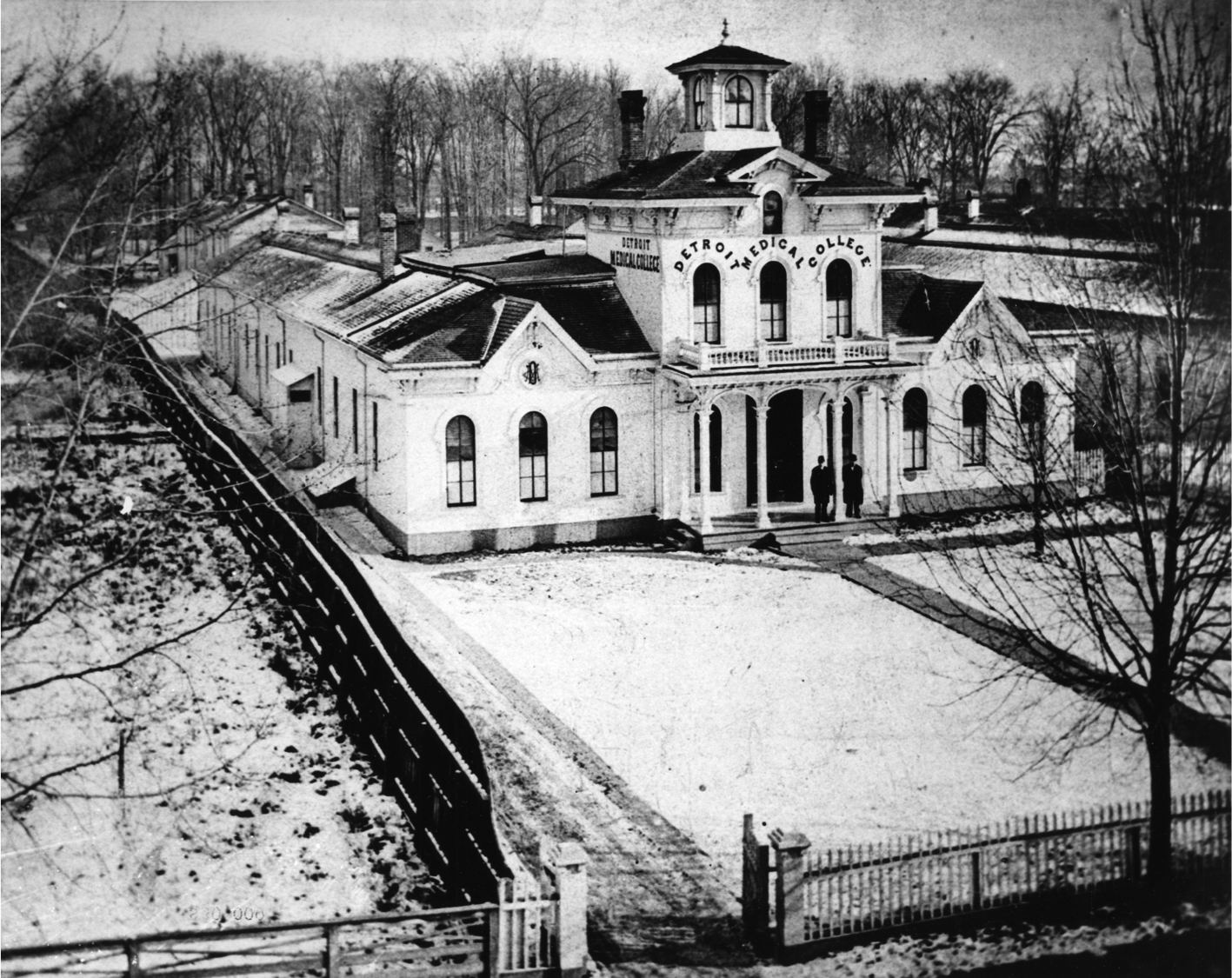
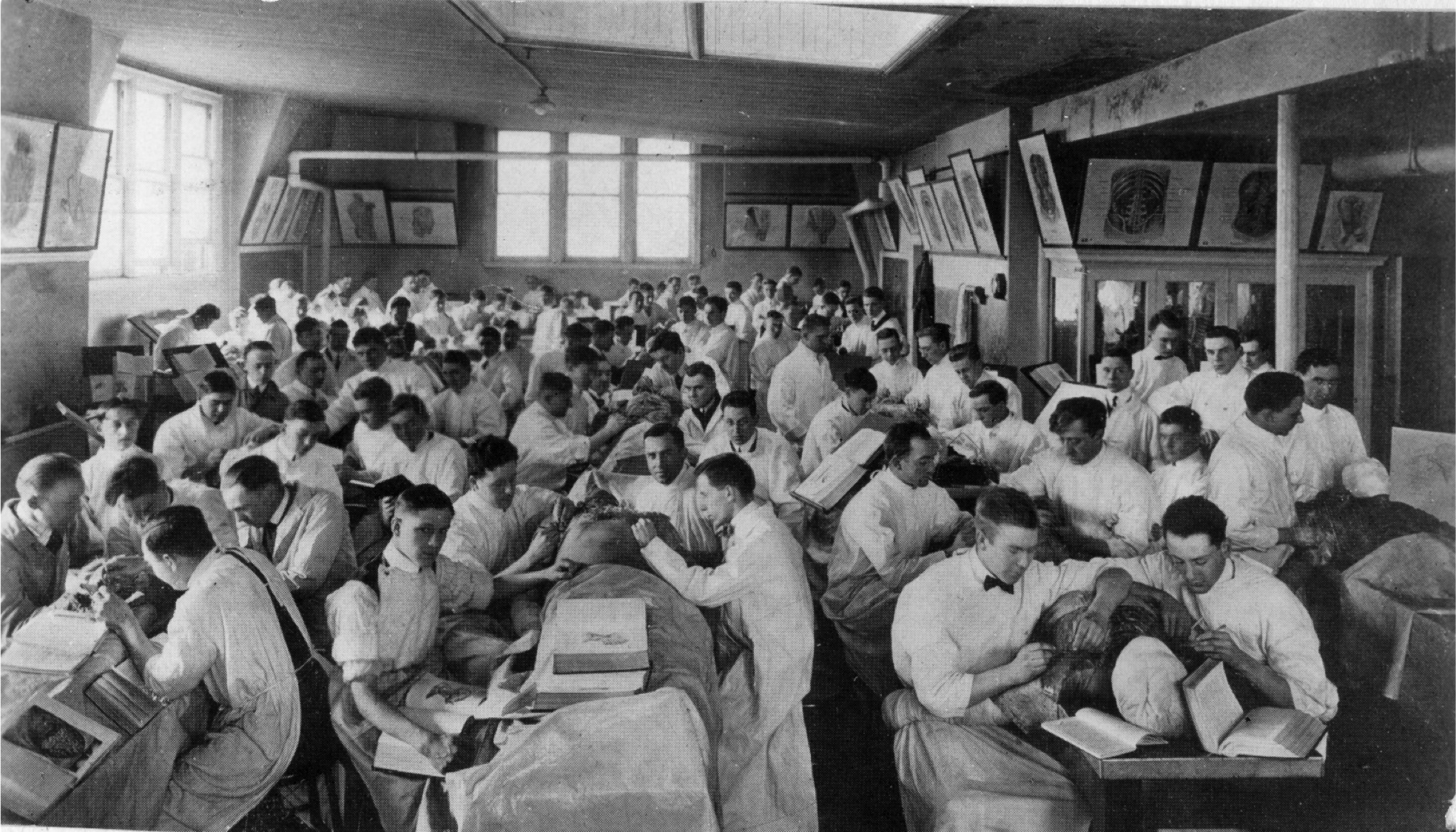
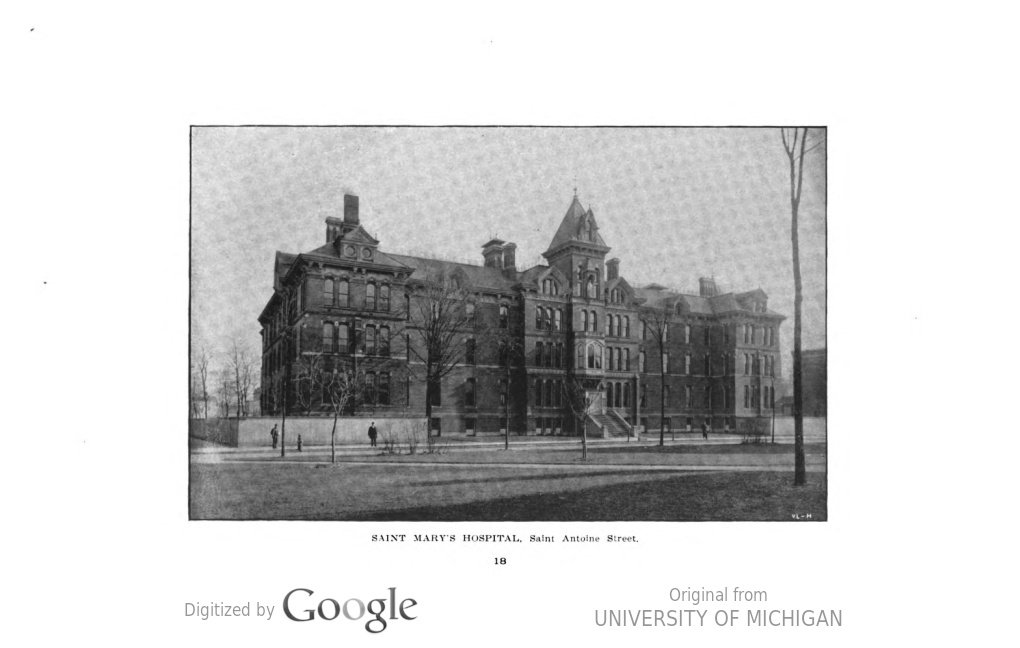
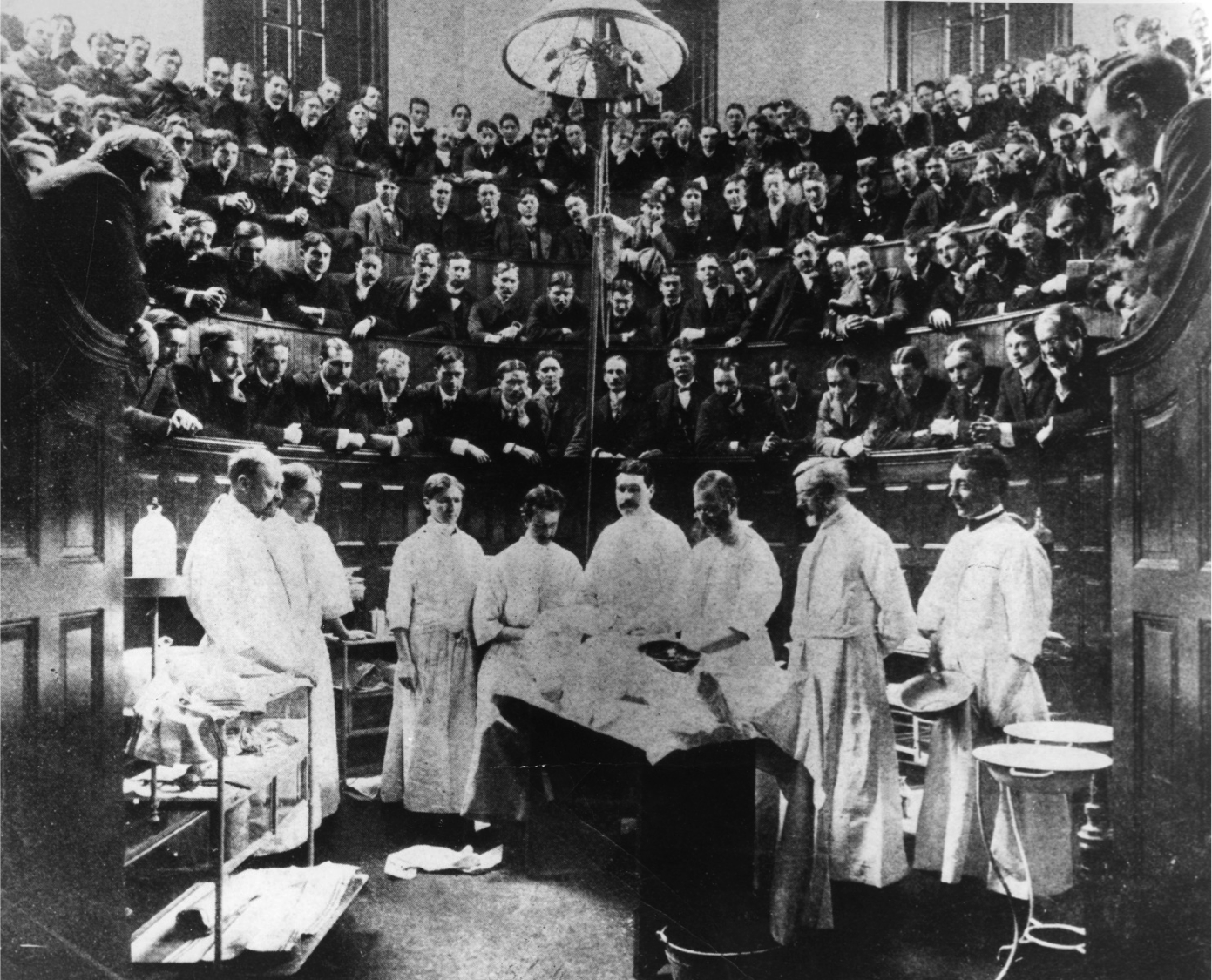
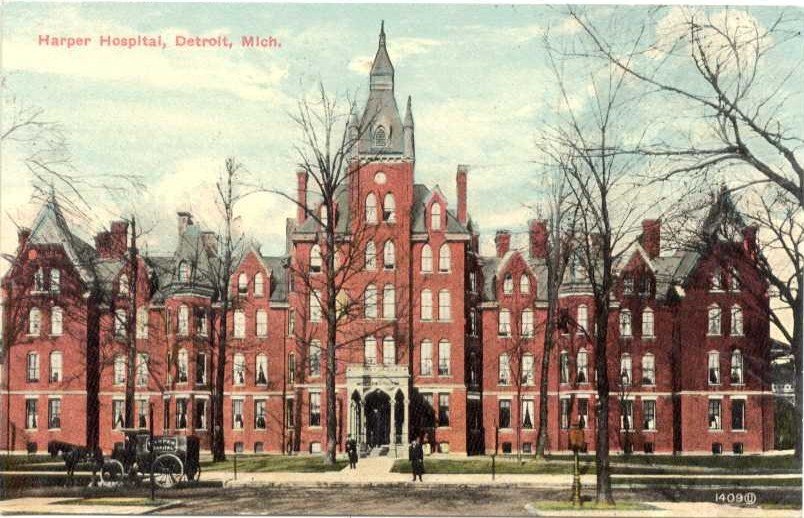
The above photo series include the following images: first is the Detroit Medical College, which housed the medical school after 1868, the second image shows students during anatomy lab sometime around 1900, which is not very different than anatomy lab at the School of Medicine today. The third image is St. Mary's Hospital, one of the two clinical training sites after 1868. The fourth image is the operating theater at St. Mary's Hospital in 1898. The Operator is Dr. Henry O. Walker. At his left, hands behind his back, is Dr. Theodore McGraw, the founder of the Detroit Medical College who emphasized teaching by doing. The final image is Harper Hospital, the primary clinical training site for students at the Detroit Medical College.
It was an honor to be able to relay the history of Wayne State University School of Medicine to my physician colleagues this weekend, and it is a great reminder of what makes doctors from Wayne State unique and so skilled - the focus on hands-on clinical training and the diversity of the people we have the privilege of serving.
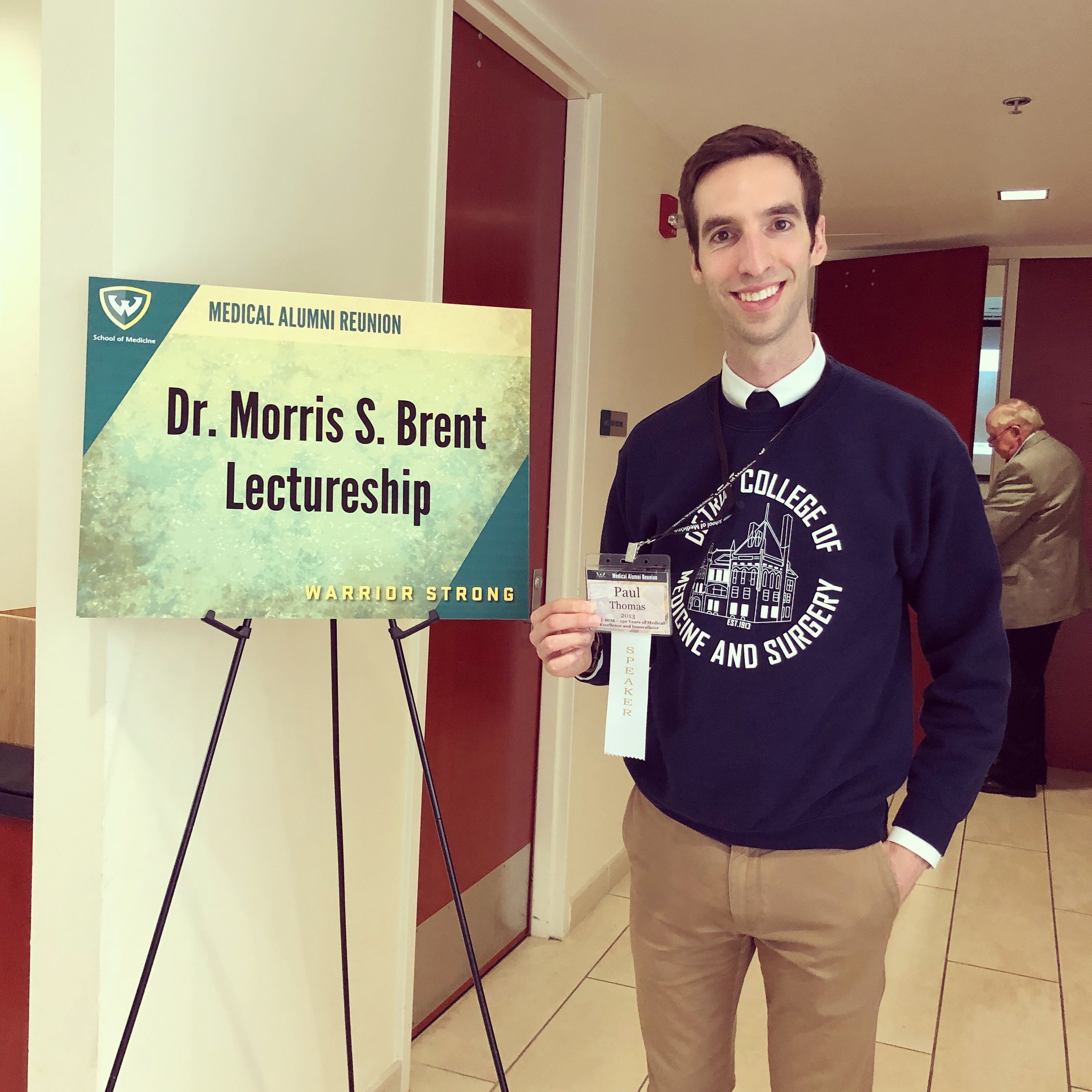
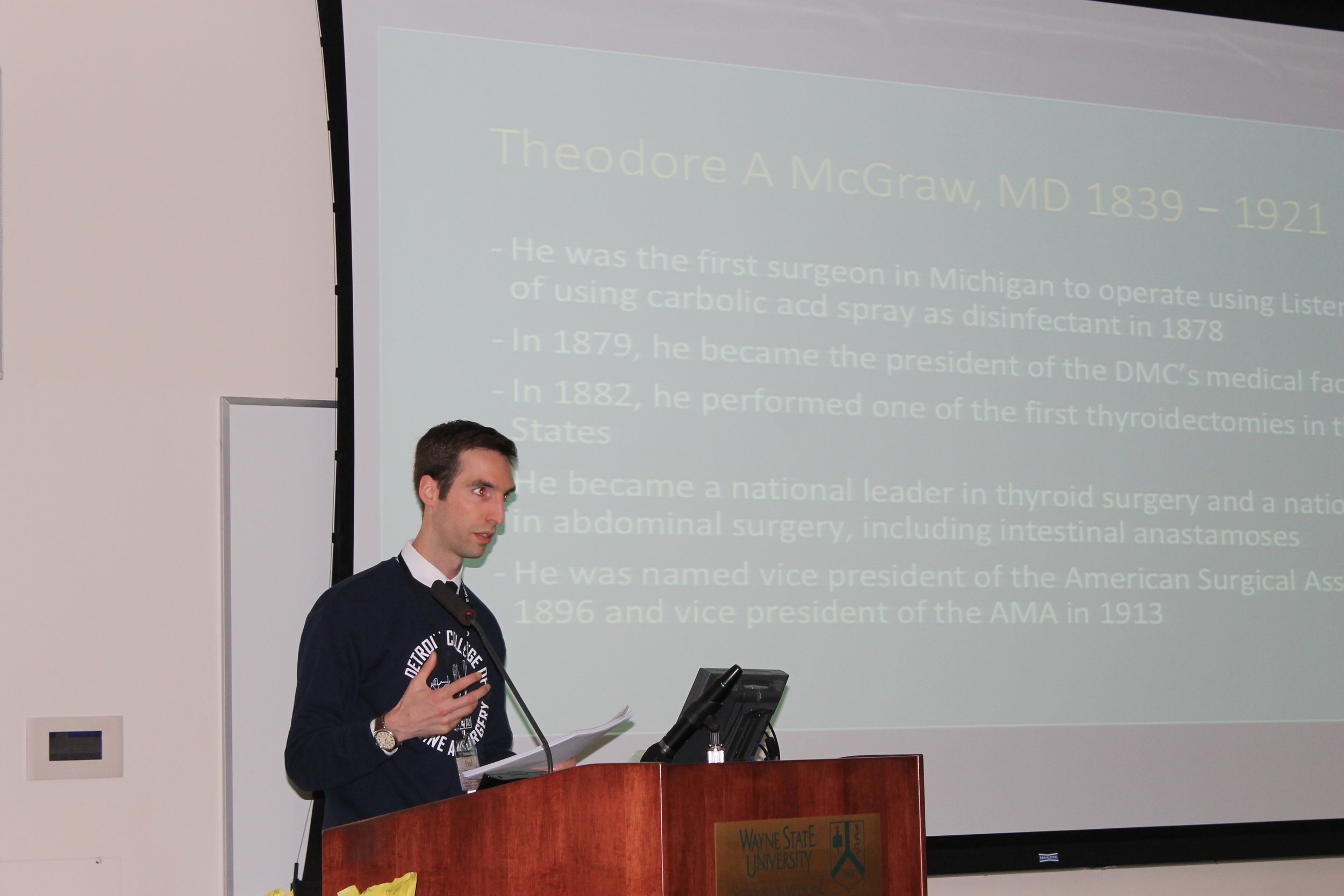
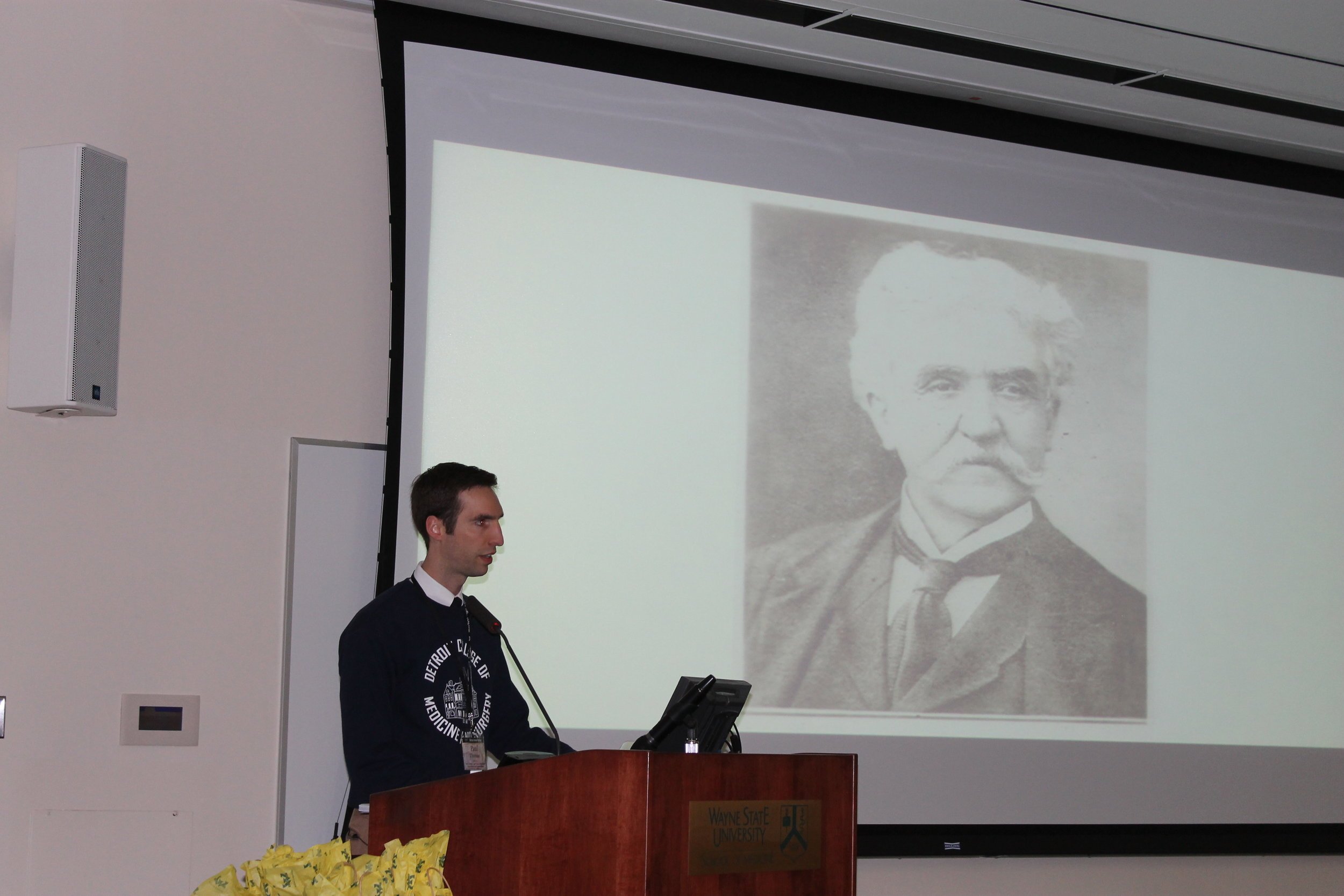
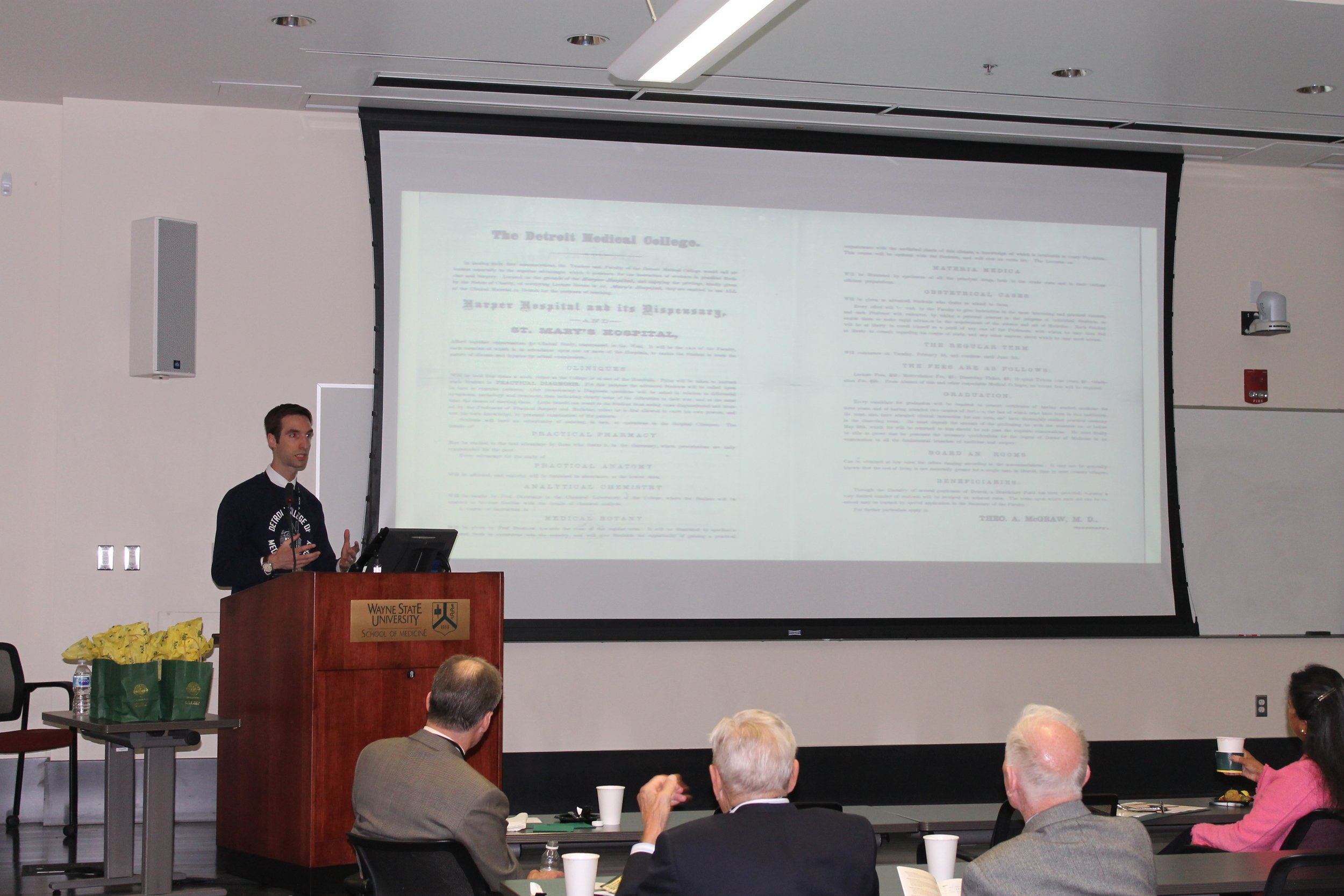
Thanks for reading,
- Dr. Paul Thomas, Physician with Plum Health DPC
Health Fair with the Wayne State Physicians Assistants
Over the past 6 months I've been hosting and teaching Physician Assistant students from Wayne State University at the Plum Health office. I've also had a few residents rotate through and a few medical students visit the clinic, some from Wayne State and some from University of Michigan.
As Plum Health is the only Direct Primary Care practice in Detroit and Wayne County, and only one of less than ten in the State of Michigan, I find that we attract PA students, medical students, residents, doctors and allied health professionals who are thinking differently about health care and it's delivery, especially in the context of health equity and health disparities.
Anyways, I've loved having these students rotate through Plum Health! They bring a unique perspective, build genuine relationships with our members, and create an atmosphere of teaching and learning in the practice. This last point is important because I practice evidence-based medicine, and having a student helps to keep me up-to-date on the latest recommendations for evidence-based practice.
So last weekend, we were able to host a health fair at the Plum Health office. "We" being myself and the Physician Assistant students at Wayne State. Their energy was boundless and they put a great deal of time and effort in creating fun health-focused stations that taught participants about being healthier.
All in all, it was a successful day! We reached out to new people in the community, and gave away free medical care. We caught a case of diabetes that was unknown prior to the fair and helped folks gauge their blood pressure, blood sugar, and cholesterol levels (HDL, LDL, Total Cholesterol and Lipid Panel).
Below are photos from the event! Thanks for reading, and have a great day!
- Dr. Paul Thomas with Plum Health DPC in Detroit, Michigan
Mentoring Students at Wayne State University School of Medicine
Part of my mission, part of the "why" behind what I do, is to educate medical students and inspire them to choose a career in primary care specialties. Primary care doctors have the greatest impact on their communities, have the most tools at their disposal, and are most able to bend the cost curve in the health care ecosystem.
As a part of that mission, I spend a good amount of time interacting with medical students at Wayne State University School of Medicine (WSUSOM). This week, I took part in two different events at WSUSOM. The first was a mentoring session for first year students and the second was a mock interview session for the fourth year students.
For the first year students, it's an opportunity to get to know each other, learn from each other, and to be a resource. For the fourth year students, it's an opportunity to help them polish their interviewing skills as they prepare for the next step in their careers - residency!
This next generation of doctors will face significant changes and challenges in the health care system - from greater automation, to precision medicine, to even Artificial Intelligence. I hope that I can be a part of the foundation along with their formal education at WSUSOM that sets them on the right path to success in medicine.
Thanks for reading, and have a beautiful day,
- Dr. Paul Thomas with Plum Health DPC
Wayne State White Coat Ceremony Speech
The White Coat Ceremony, a New Tradition
The annual White Coat Ceremony is a relatively new tradition at medical schools across the country. In order to convey the virtues of the profession - compassion, altruism, duty, honor, respect, and responsibility - Dr. Arnold P. Gold created the event.
The first White Coat Ceremony was held at the Columbia University College of Physicians and Surgeons in New York in 1993. Dr. Gold believed that students should declare their commitment to the profession and the virtues therein at the beginning of their medical school journey, rather than at the end.
Now, 97% of medical schools have a White Coat Ceremony. The Ceremony gives a clear set of guidelines for these doctors-in-training to follow, and students are able to accept the obligations of the profession and commit to upholding the high standards that come with the title of "doctor".
The Declaration of Commitment
I solemnly pledge myself to consecrate my life to the service of humanity;
I will give to my teachers the respect and gratitude which is their due;
I will develop my skills with conscience and dignity;
The health of my patients and myself will be my first considerations;
I will respect those things that are confided in me;
I will maintain by all the means in my power the honour and the noble traditions of the medical profession;
My colleagues will be my comrades;
I will not permit considerations of religion, nationality, race, party politics, sexual orientation, or social standings to intervene between my duty, my peers, and my patients;
I will maintain the utmost respect for human life and I will not use my medical knowledge contrary to law;
I make these promises solemnly, freely and upon my honour.
My Speech
First of all, it was a tremendous honor to be selected as the Keynote Speaker for the Wayne State University School of Medicine White Coat Ceremony for the Class of 2021. When I received the phone call to be the speaker, I was nearly speechless and unsure of my ability to live up to the expectations that come with this role. I needed 24 hours to think on the offer.
After talking it over with my wife, I decided that this was something that I could do, and that I had a lot to say about the opportunity before these students and the medical profession in general.
When I was getting ready for medical school, I read several books. I was to be the first doctor in my family and I had a limited perspective on the medical field, i.e. I had no idea what I was getting myself into.
One of the authors that stuck with me was Atul Gawande, a surgeon and writer out of Boston. He wrote about the appealing aspects of a career in Medicine: autonomy, complexity, and a direct relationship between effort and reward.
However, something was missing. For me, that something is happiness. You see, doctors struggle with professional burnout, substance abuse, and suicide. We can speculate about why, but I think it's some combination of consistent perfection, frustrations with the monolithic systems within health care, and a heavy workload. I didn't want to get into the darker side of these concerns during the White Coat Ceremony, but they definitely influenced my speech.
Because of these concerns and these problems in the medical profession, I believe that we need to focus on creating a culture of happiness in the medical field. How can we train doctors to be happy? How can we create hospital systems, clinics, and insurance policies that foster physician wellness and happiness?
I don't know if there are great answers to these questions, but it's something that I have thought about deeply. For me, creating a happy practice involved creating a membership model for health care via Plum Health. That works for me, but during my speech, I encouraged these medical students to explore the profession fully and to find their own means of happiness within it.
I wish the very best to the WSU SOM Class of 2021. I know that these students will be a part of a generation of doctors that revolutionizes the way we deliver high-quality, compassionate health care. Without further ado, my speech:
Thanks for reading and for watching, and have a wonderful day,
- Paul Thomas, MD | Doctor with Plum Health in Detroit, Michigan
Wayne State University School of Medicine published an official write-up about the event on their webpage, here.
Medical Equity Conference
Yesterday, I attended the Inaugural Health Equity Research Conference at Wayne State University. It was held in the student center and brought together several stakeholders in Detroit. The day began with several excellent presentations from undergraduate students and medical residents, ranging from Sickle Cell Anemia to Hearing Aids and Alopecia related to Chemotherapy.
After, a panel was held that brought together some thought leaders in the public health sphere, including:
- Dr. James Blessman, who spoke about the Citizenship Report card and the importance of eating more healthy foods, as in the Nutritarian Diet.
- Dr. Michele Cote, of the Karmanos Cancer institute who spoke about Lung Cancer screening
- Dr. Wassim Tarraf who discussed being a statistic himself, as an immigrant and adopting some of the unhealthy practices of living in America, like an unhealthy diet.
- Dr. Dawn Misra - of the Wayne State University Department of Family Medicine and Public Health who has an interest in perinatal health disparities.
- Julie Comstock-Gleason, who spoke about the importance of community health and community health workers as experts who know the community well. Currently, she's working on a project about heart health by building community health awareness groups and asking individuals to write themselves letters about what it means to be heart healthy.
- Dr. Phillip Levy is an emergency medicine physician at Henry Ford hospital and he discussed transformative moments in his career while taking care of patients in the emergency department at Lincoln Hospital. One of his quotes that stuck with me is when he referenced Roemer's law, or the idea that in an insured population, a hospital bed built is a filled bed. This means that whenever we as a community decide to build a hospital bed, it will not sit empty. This lead to further commentary about treating people who are ill rather than taking care of people so they remain healthy.
- Dr. Abdul El-Sayed, formerly of the City of Detroit Health Department, now making a run for Governor of Michigan had the audience repeat the definition of Public Health. Public Health is what we as a society do together to create healthy conditions. He also discussed how resources that keep people healthy are not evenly distributed. He noted that 40% of Detroiters don't have reliable access to transportation, creating an environment where people are not able to access basic services or meet their basic needs.
- Dr. Kim Jaffee of the School of Social work at Wayne State University discussed a pregnancy and nutrition surveillance system. Her team looks at the macro factors that affect pregnant women. She also is interested in low birthweight babies and the disparities in infant mortality rates between different communities. She is now examining the health disparities in the transgender community. One statement that she made that stuck with me is that Transgender patients who have to teach their doctor about who they are and what it means to be transgender are 3x's less likely to access care when they need it.
Health Equity is a big reason why we do what we do at Plum Health. We lower the barriers to excellent primary care services by making healthcare more affordable. We lower the costs of medications and lab testing by delivering these services at cost, saving our patients thousands of dollars each year. If more primary care doctors are able to practice in this Direct Primary Care model, we could truly make healthcare more affordable and accessible for all people.
Thanks for reading and have a wonderful day,
- Paul Thomas, MD




